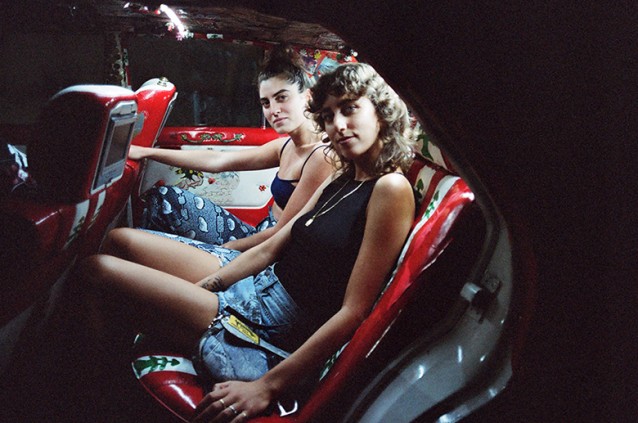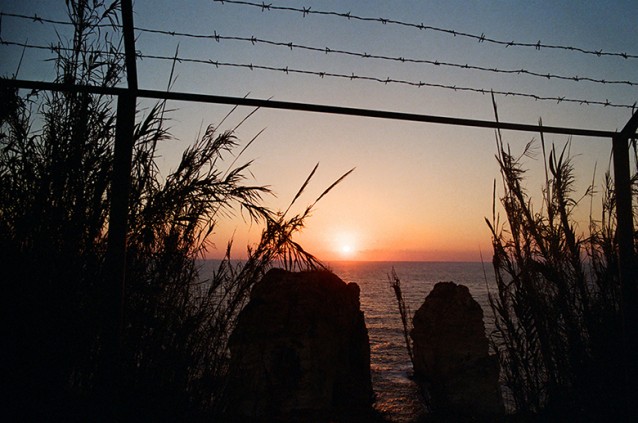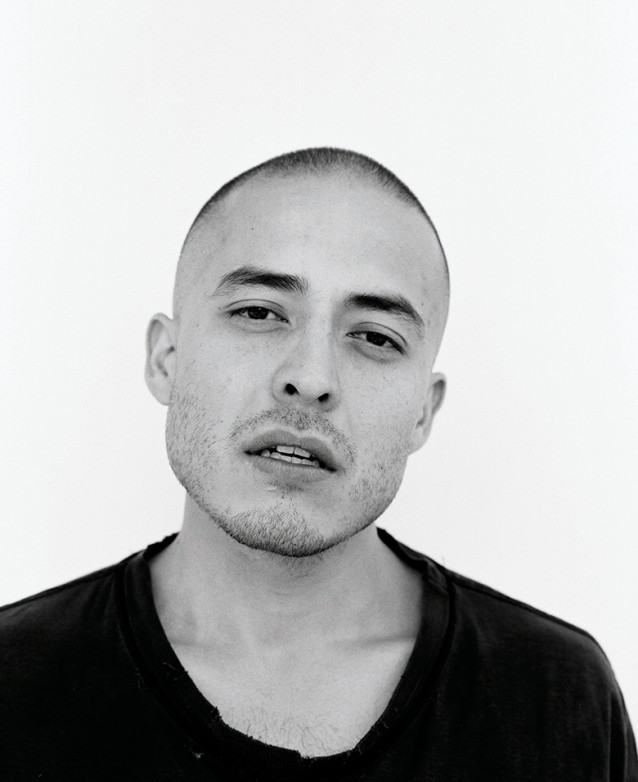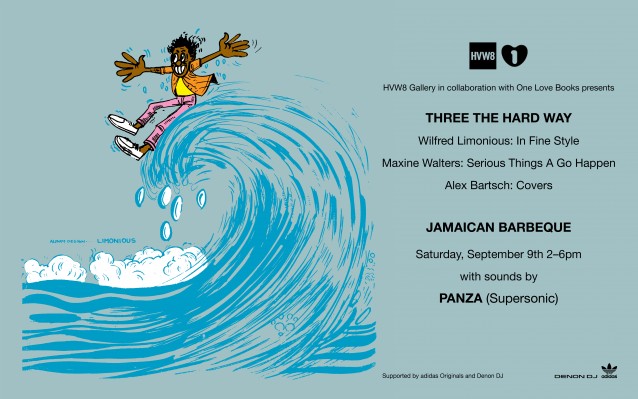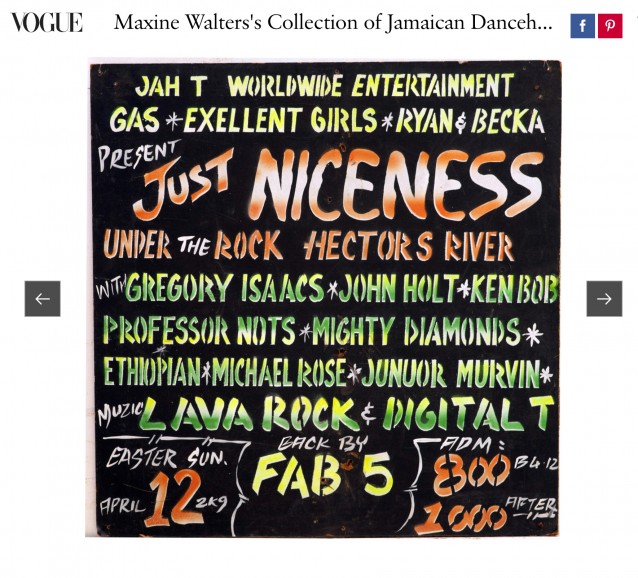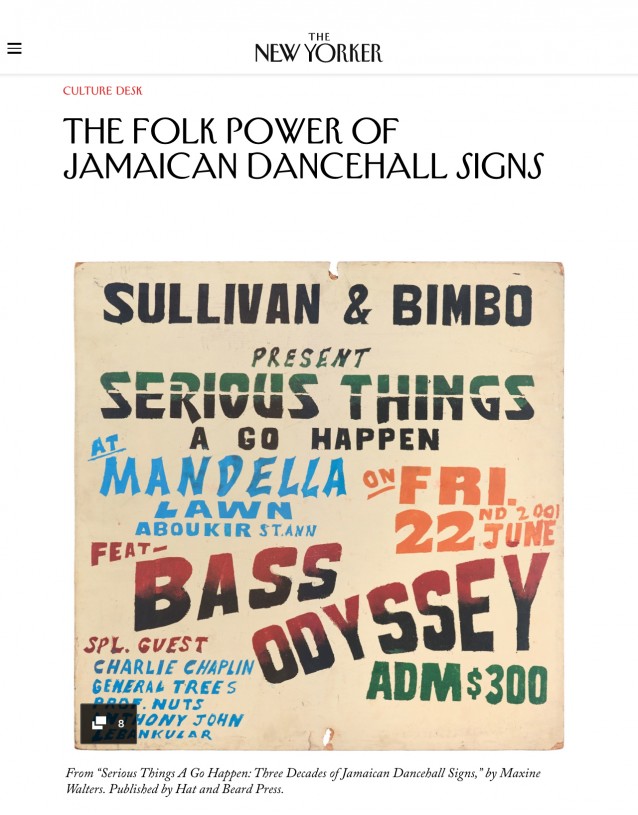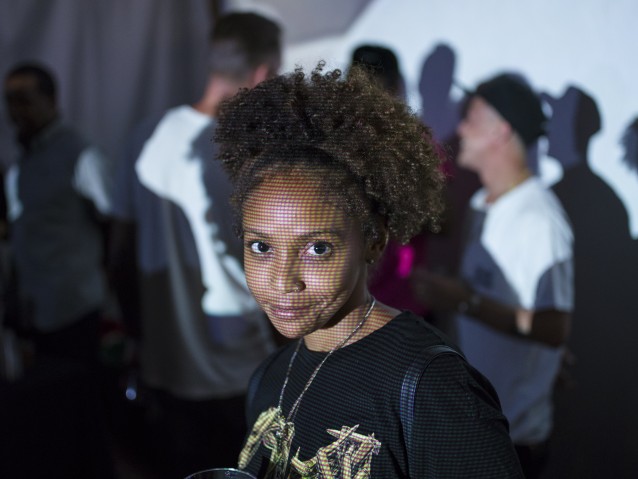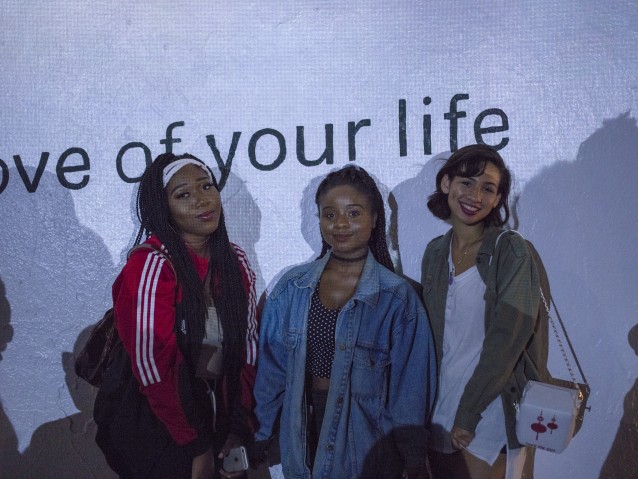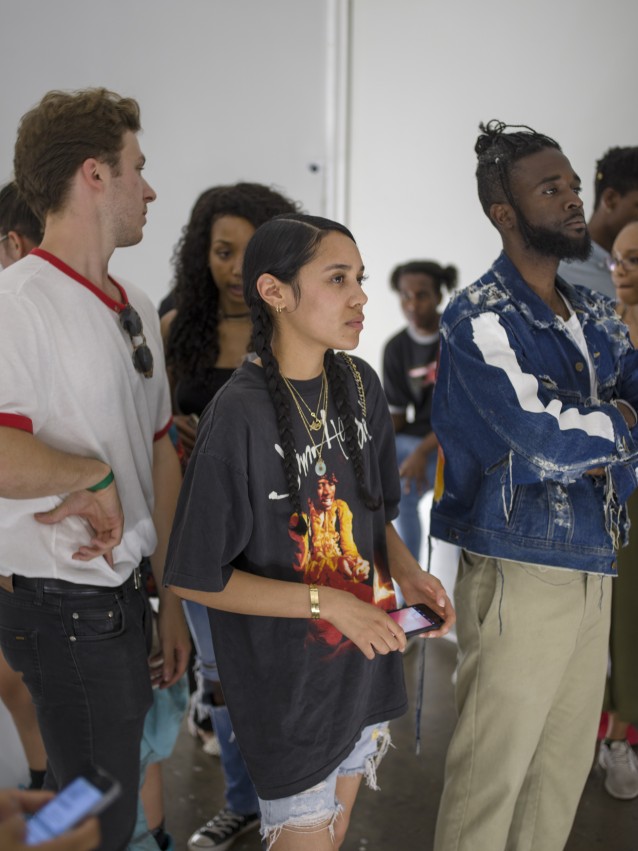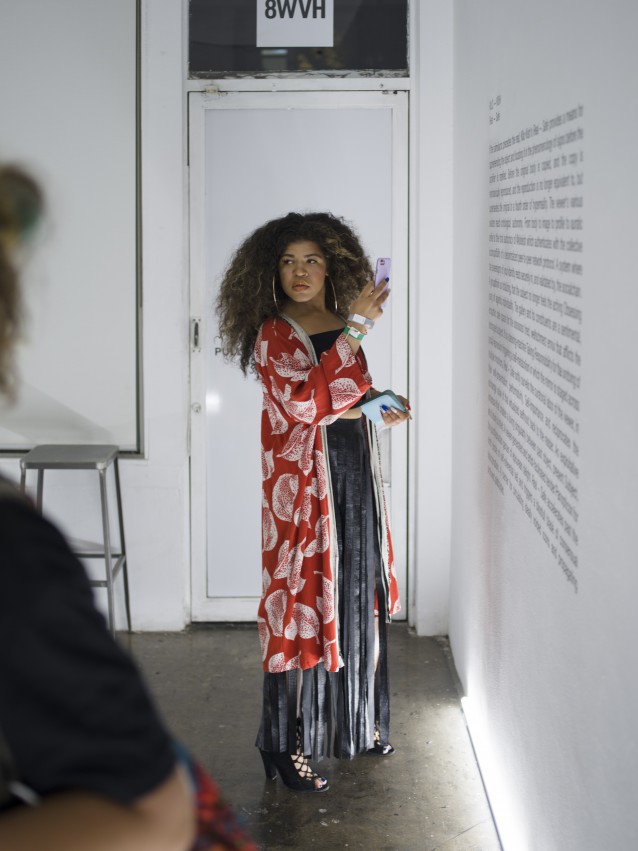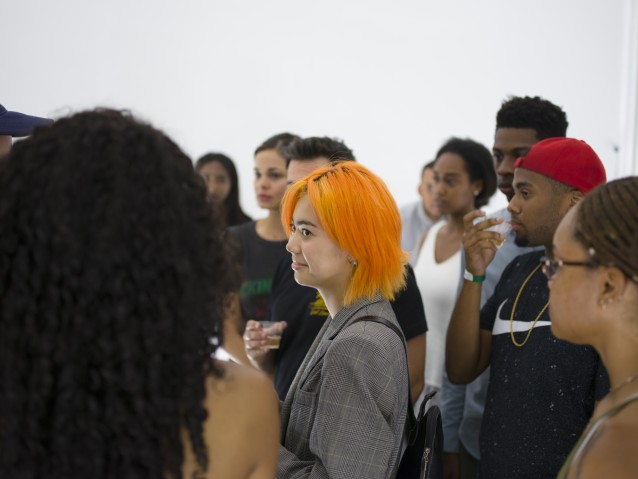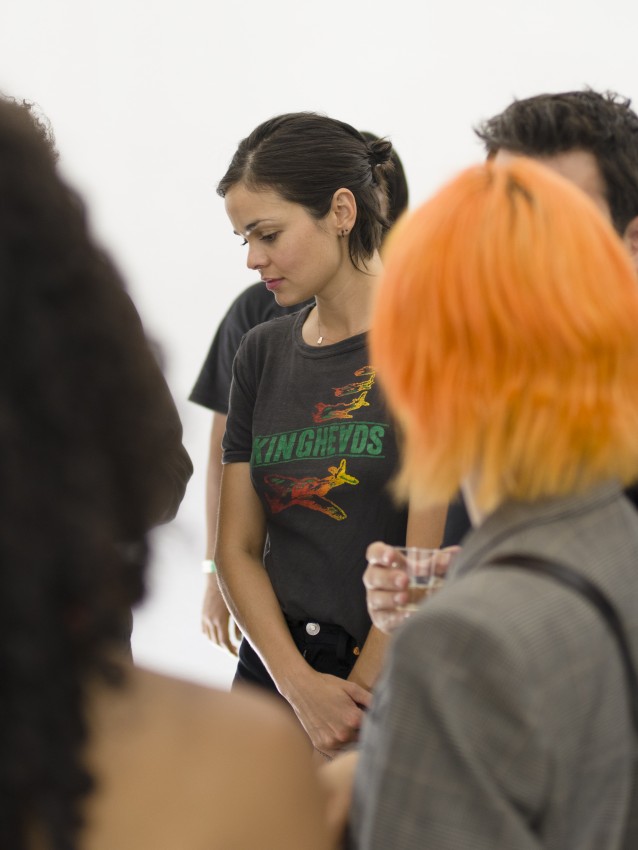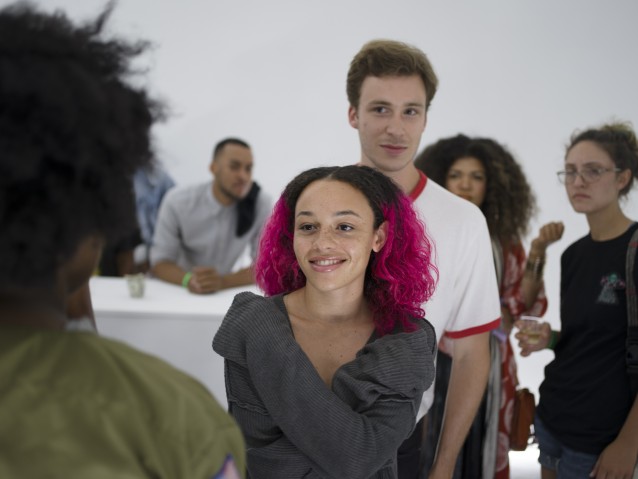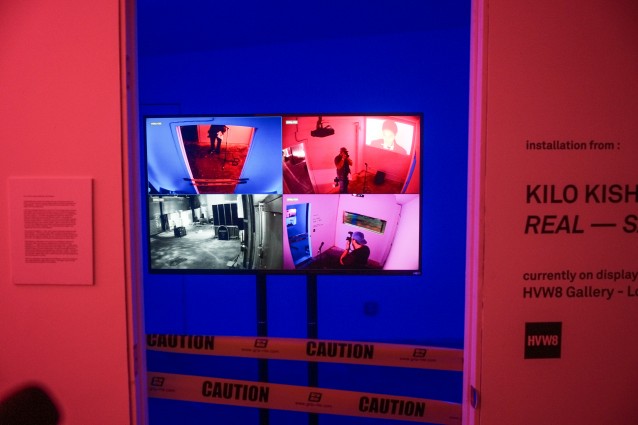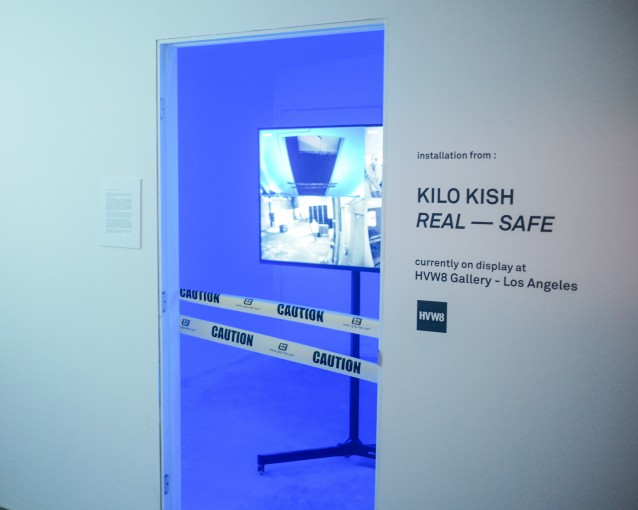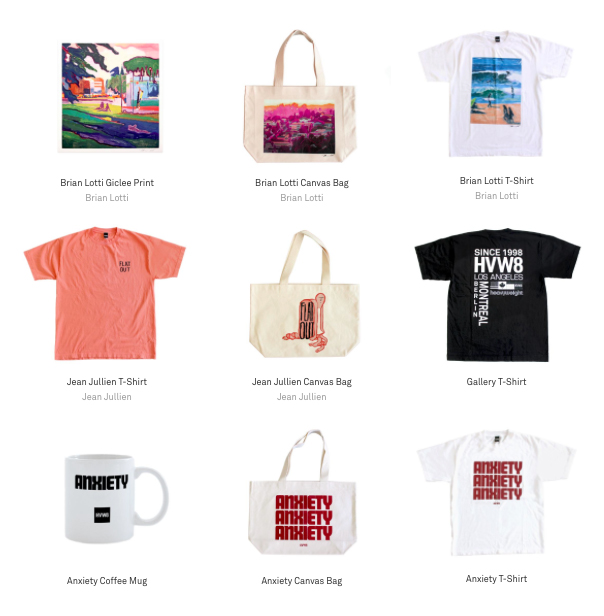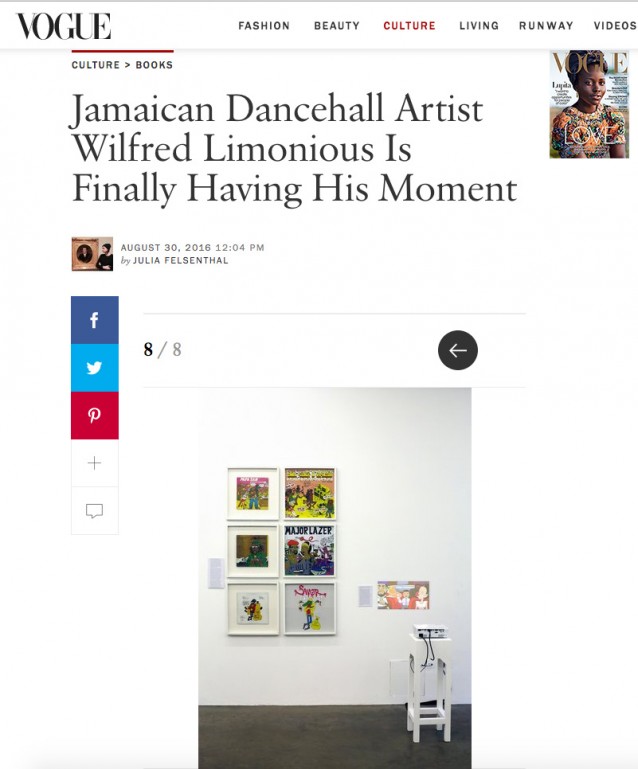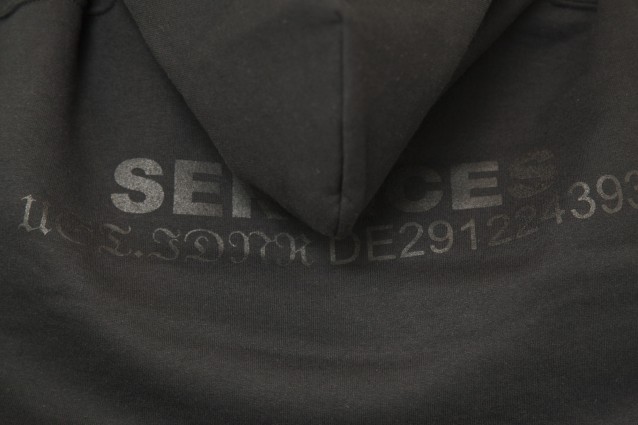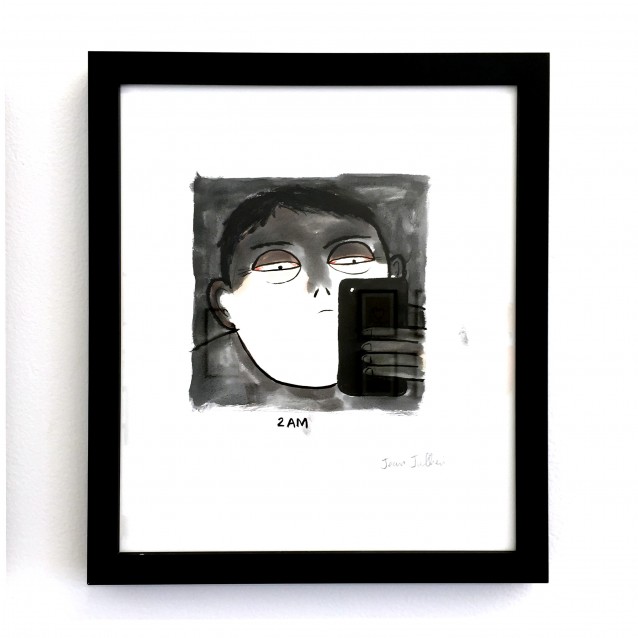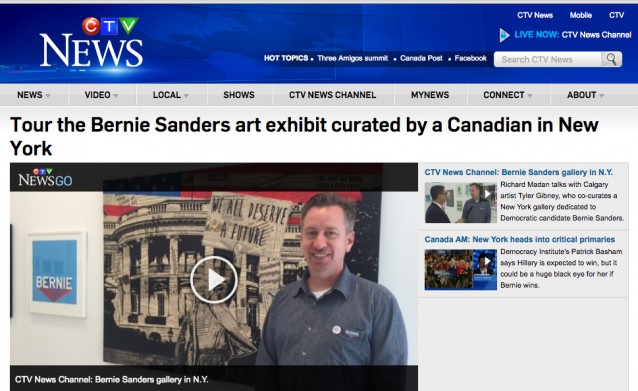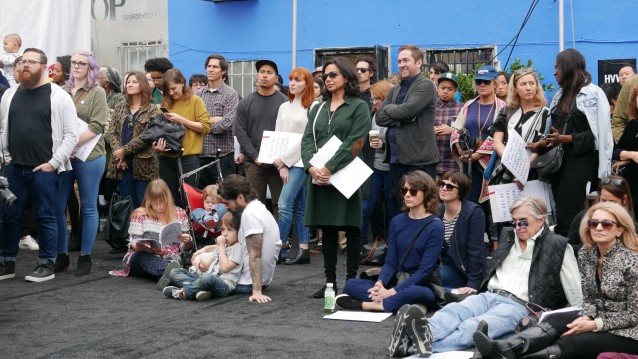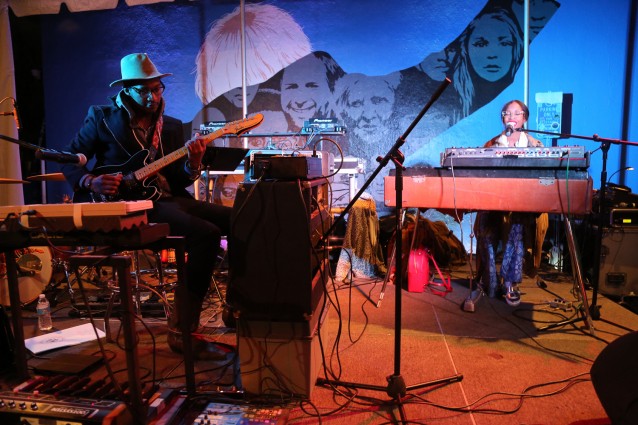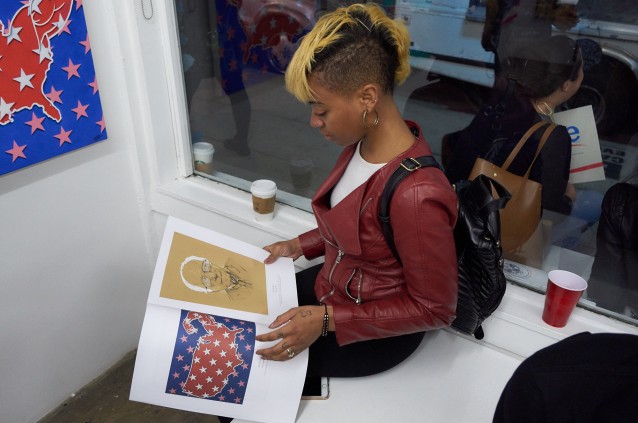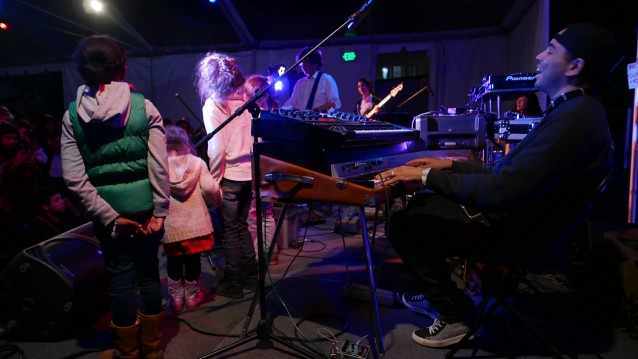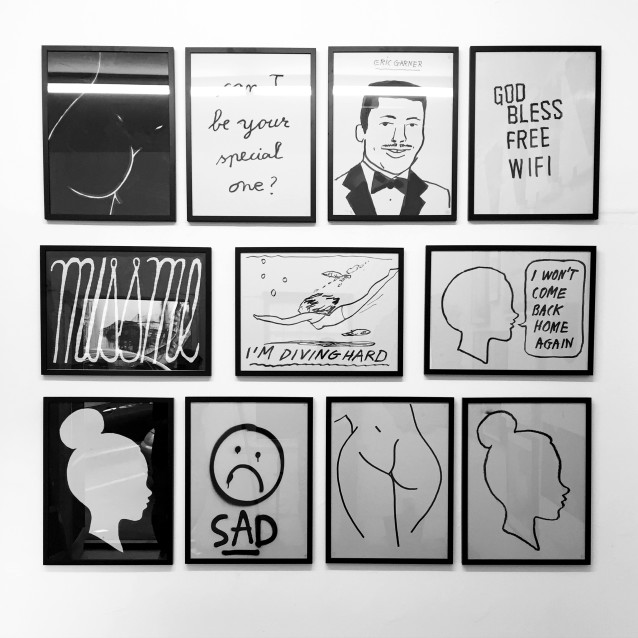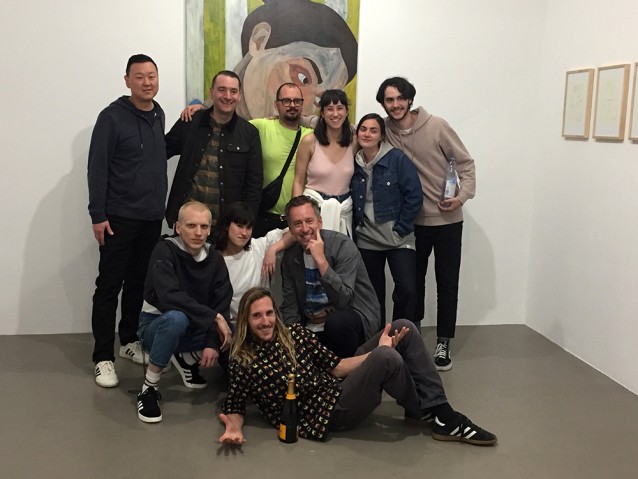
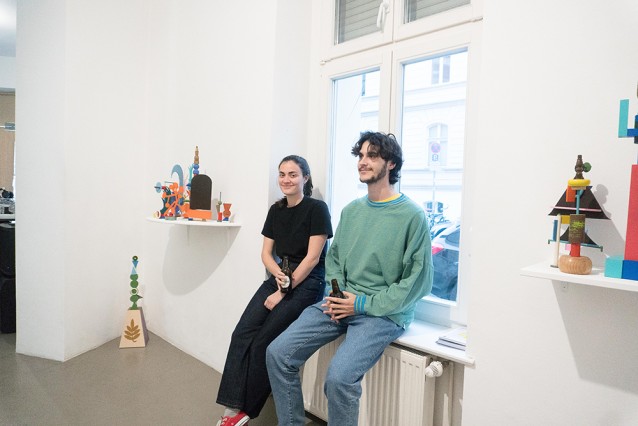
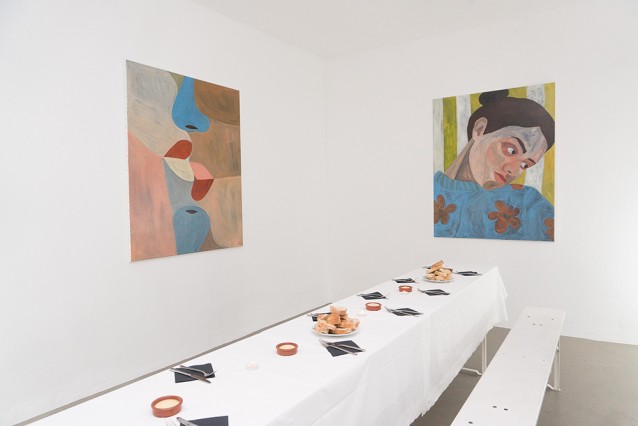
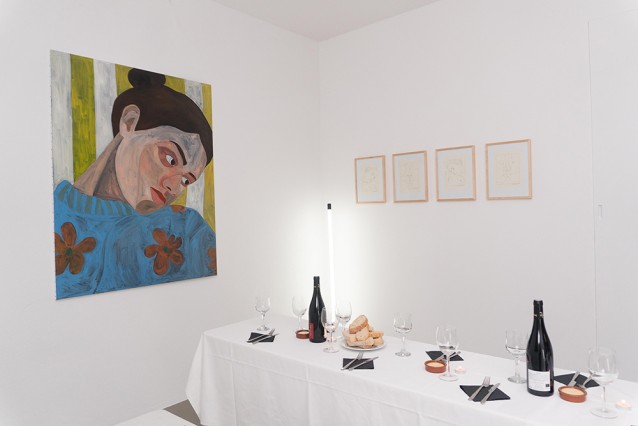
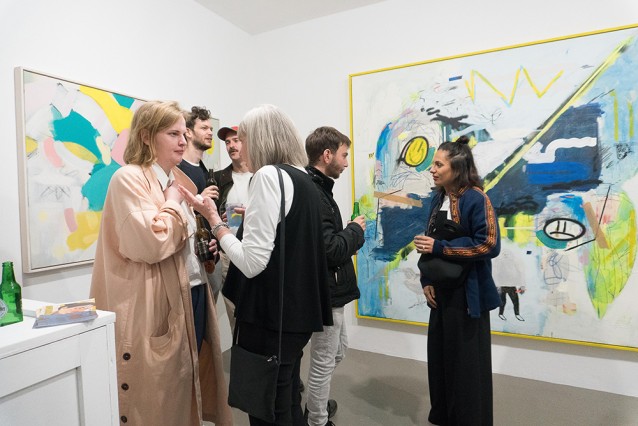
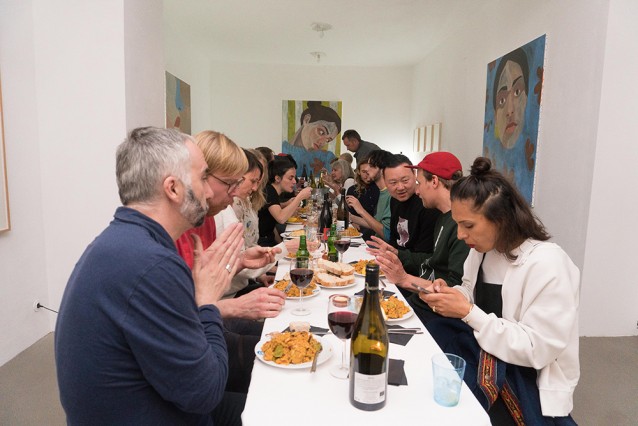
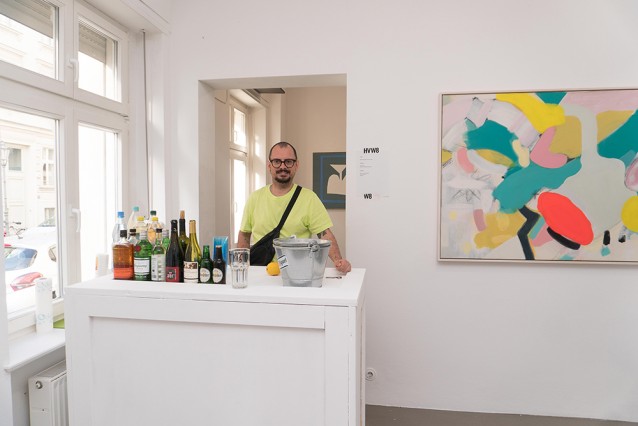
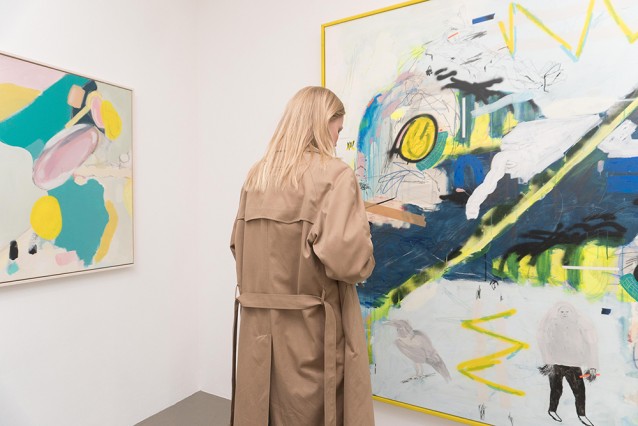
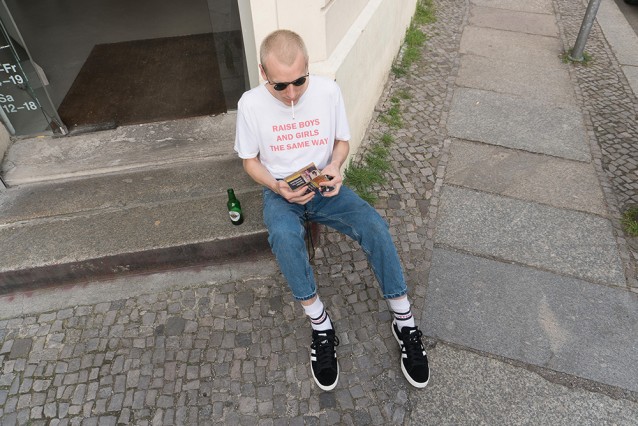
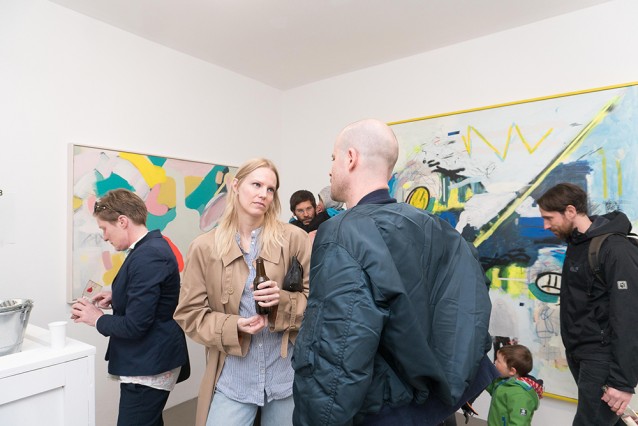
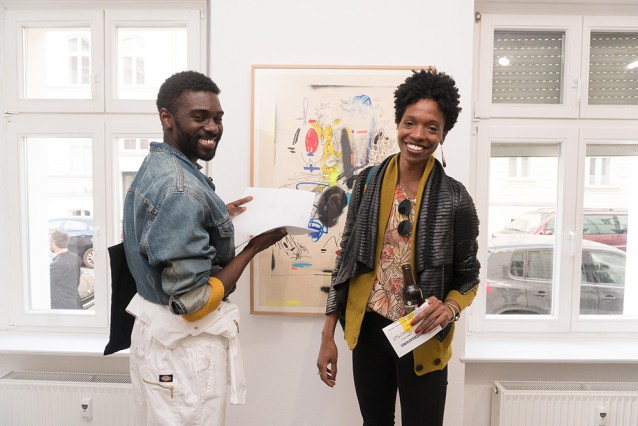
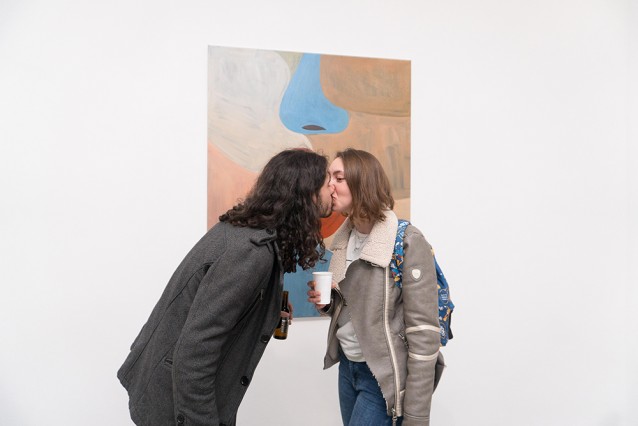
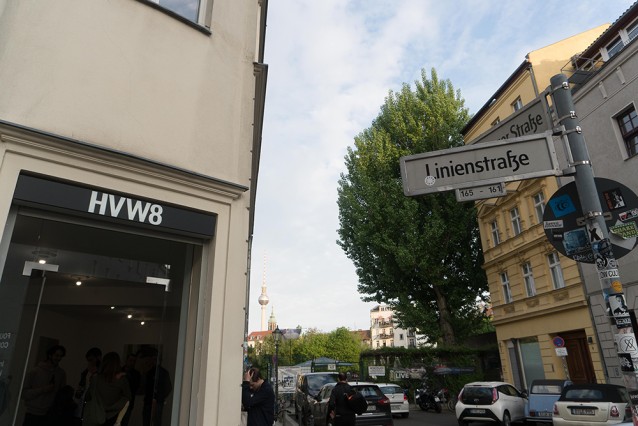
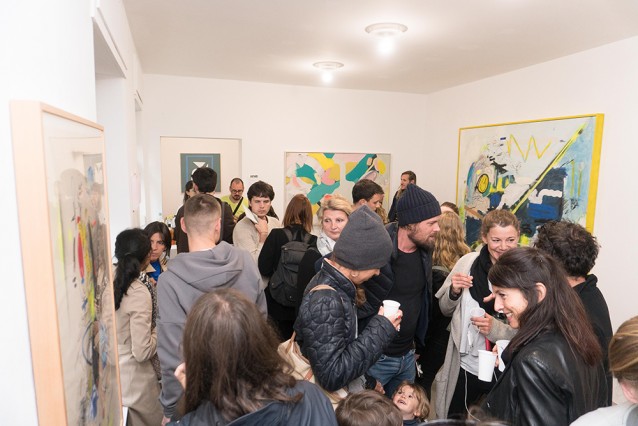 Continue reading “Four Conversations Gallery Dinner and Opening Night”
Continue reading “Four Conversations Gallery Dinner and Opening Night”
Tag: HVW8 Gallery
Kali Uchis at HVW8 Gallery
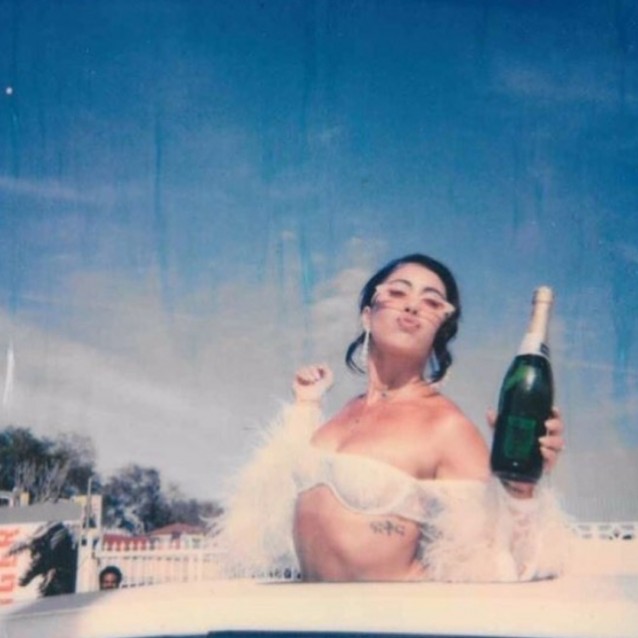
Kali Uchis ‘Isolation’ Installation at HVW8 Gallery, April 8th, 2018.
Inès Longevial on the Cover of Juxtapoz
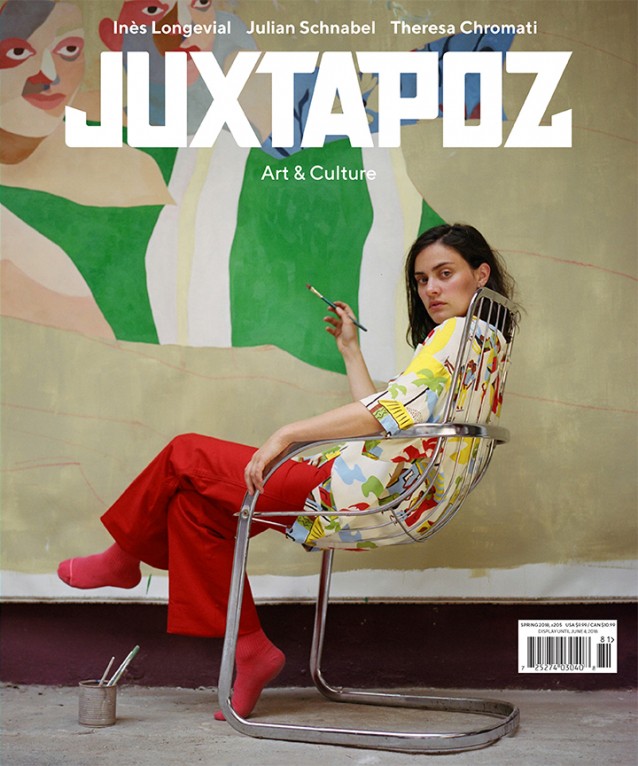
Proud to have Ines Longevial on the Cover of Juxtapoz featuring artwork from the HVW8 exhibit ‘Sous Le Soleil’. The next exhibit with Inès will be April 27th in Berlin for Gallery Art Week. Please email info@hvw8.com for inquiries.
Read the Cover Story article ‘Inès Longevial – Life in the Balance’
Other Recent Press :
New York Magazine – The Cut
https://www.thecut.com/2018/03/instagram-famous-painter-explores-visions-of-femininity.html
‘BEIRUT YOUTH’ Opening Night Photos
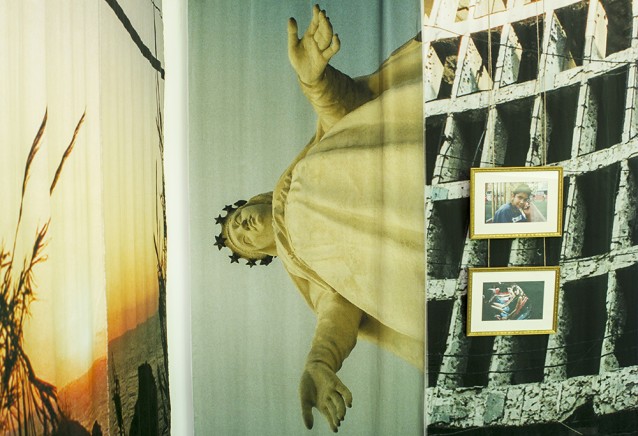
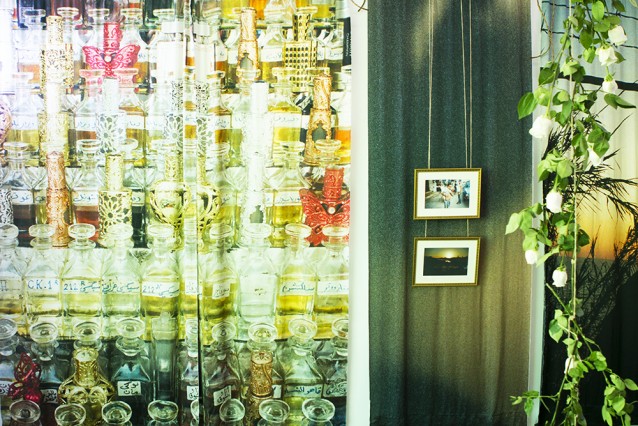
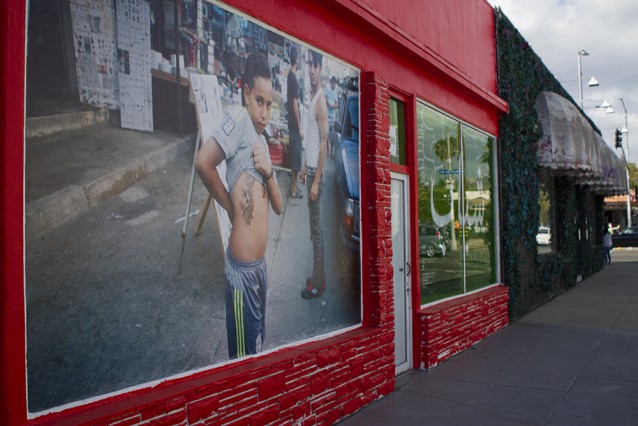
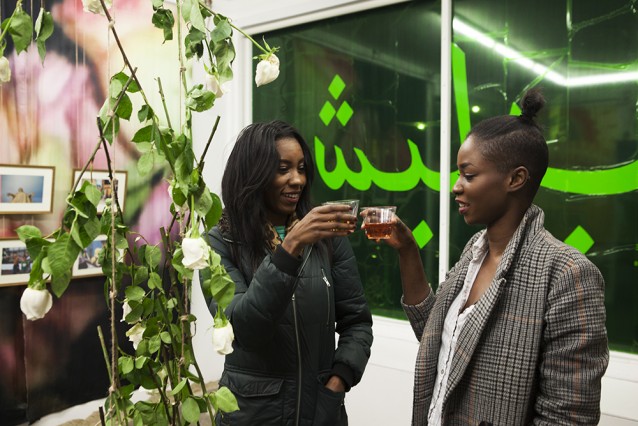
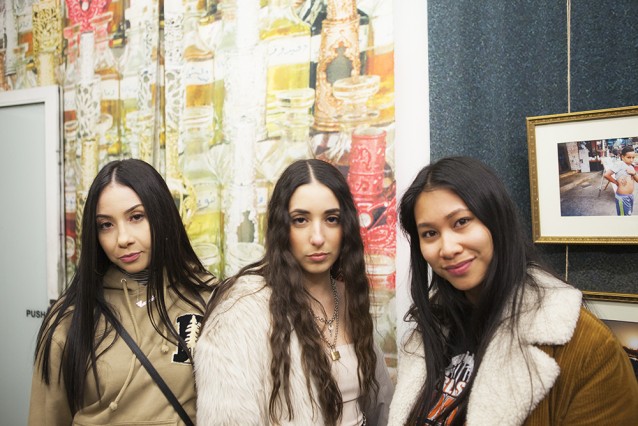
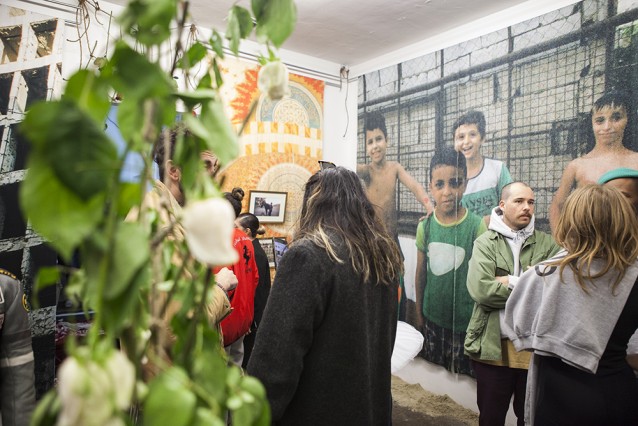
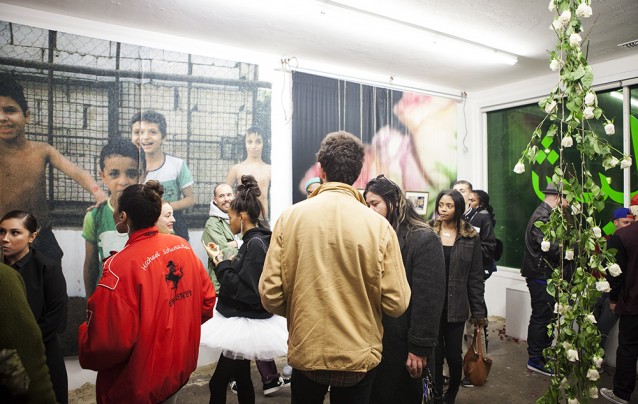
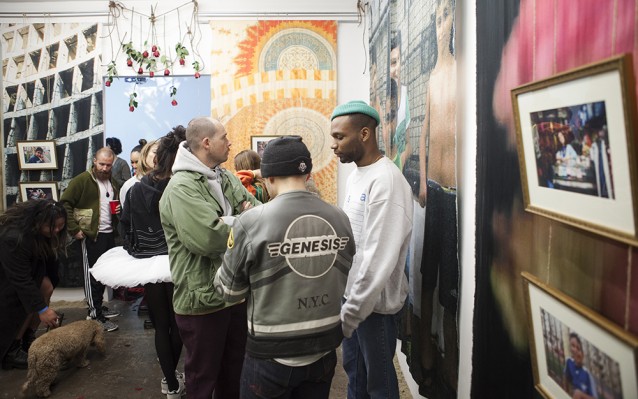
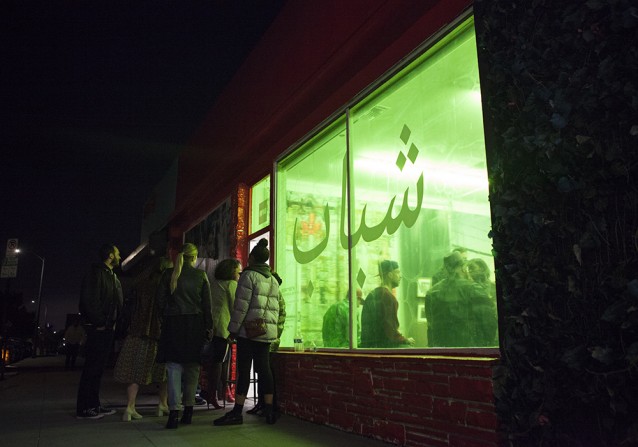
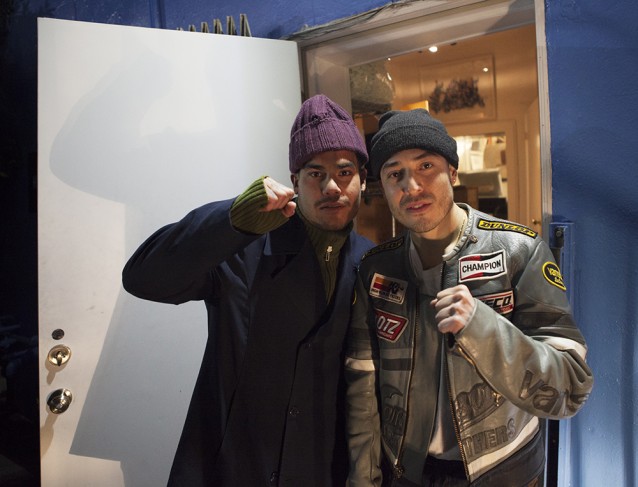
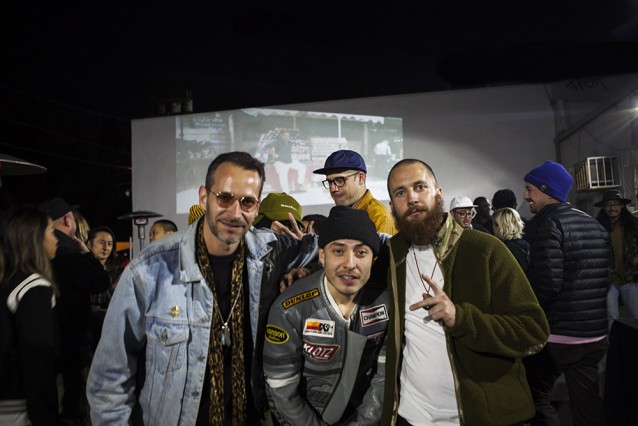
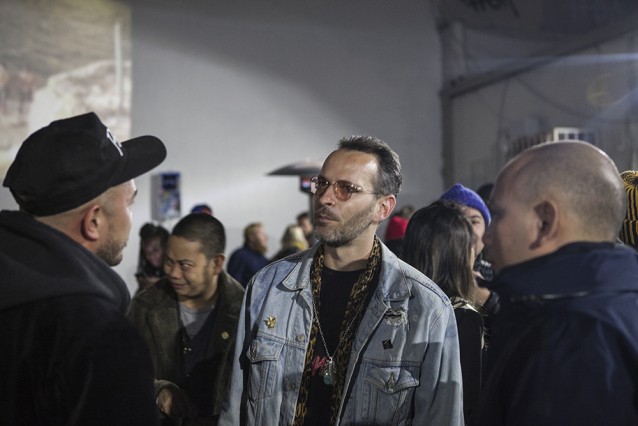
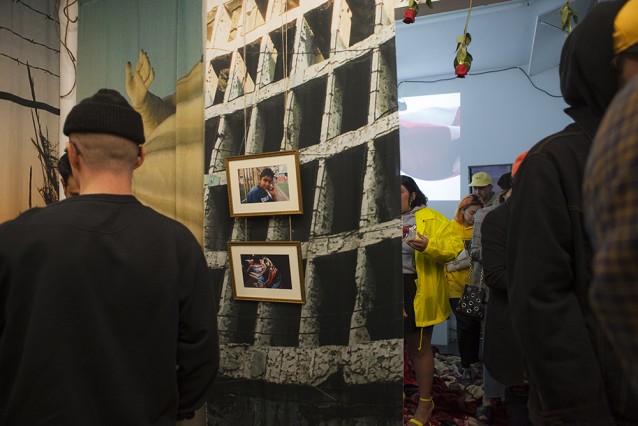
A few photos from opening night of ‘Beirut Youth’. Thank-you to everyone who attended.
More photos from opening night in Purple Magazine.
Gogy Esparza Interview with Art Writing SVA
Interview from Art Writing SVA
Degree Critical, Spring 2018
Interview: Gogy Esparza and Sahar Khraibani
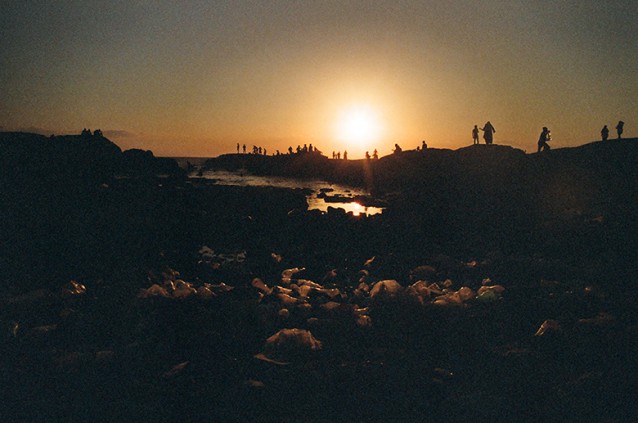
Gogy Esparza. Beirut Youth (2017). Courtesy of the artist.
by Sahar Khraibani
I first met NYC-based, Ecuadorian-American artist Gogy Esparza through mutual friends, and the first time we hung out we ended up walking down Madison Avenue on a Thursday afternoon. On that walk, Gogy told me that he gets his inspiration from the shop windows on this street. This surprised me, because I never took him for an Upper East Side aficionado. My vision of Gogy was that of a warm-hearted individual, who spent the last ten years or so hustling in the gritty art scene, as far away as can be from Madison Avenue. I was living in Beirut in 2016 when he was there shooting for his Beirut Youth project (2017), and though we did not cross paths, the word of his visit spread like wildfire in such a small city. The project, initially tackled the globalization of subcultures, but ultimately showcased the juxtaposition of a diverse culture, where different religions, classes and opinions breed both its chaos and its charm. It later gained a sponsorship from Adidas Originals for the exhibition to tour worldwide. Gogy and I squeezed this conversation between two haircutting appointments at his Chinatown studio. I arrived right after he had finished giving his first haircut of the day. As he sat comfortably in his barber’s chair, we discussed his path as a barber and artist working across film, photography, and fashion.
The following text has been edited for clarity.
Sahar Khraibani: You just came back from showing Beirut Youths in Tokyo. Did that trip change your perspective of the project? How was it perceived there?
Gogy Esparza: Really well. I mean, I don’t want to generalize, but the creative culture in Japan is very curious and anything they find exotic they want to know about. They tend to explore outside cultures and they go all the way: they do all their homework, they ask a lot of questions, and I think they’re very respectful and genuinely curious. That’s why I love it there. And it was great to see their reactions cause they were like “wow, the conditions in the [refugee] camps are really crazy, the history is so complex.” They were willing to ask the right questions, and eager to educate themselves.
SK: I was watching the Beirut Youths videos again, and I was thinking about their content. You know, it’s home for me, and I was thinking of the Sabra and Shatila refugee camp especially because I’ve been there so many times for different reasons. So I have a different relationship to the camp in a way, but I normally don’t like it when people other-ize and exoticize it. Your video didn’t do that. You know, it’s a very specific culture they have in the camp: it’s their own little world, kind of like Chinatown on a smaller and more condensed scale. So I was curious, as someone who had never been to Beirut before, what was your perception of Beirut before going and after going, especially visiting the camps and then areas like Raouche, which is really a mishmash of people from all classes.
SK: But you didn’t.
GE: But I was really naturally attracted to that. I was there when Trump was about to be elected and then there were a couple of documentaries that came out that talked about U.S. relationships with the Middle East. One of our big goals was visiting Mlita in the South and the Hizbollah Museum. There you see the other side, because in the U.S. you only get the U.S.-Israeli side. So a lot of my focus was initially on the history of war. As you know, I’m an immigrant from Ecuador who came to the U.S. with my family. We grew up in the inner city, in the hood, so naturally I kind of gravitate towards these stories of conflict and displacement because I relate to that.
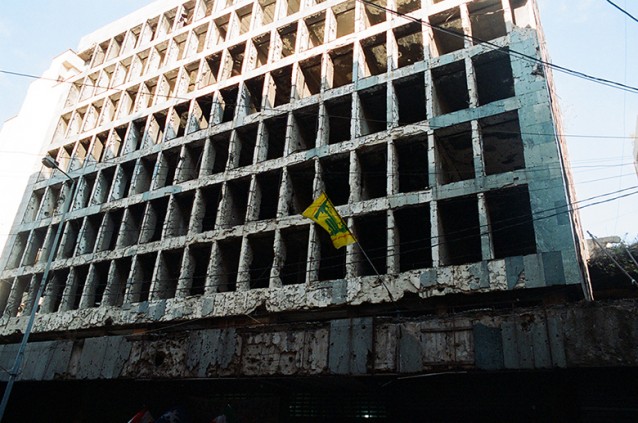
Gogy Esparza. Beirut Youth (2017). Courtesy of the artist.
SK: So you’ve been through a form of displacement?
GE: Exactly. And also assimilation, right? Palestinians here are refugees but in Lebanon they somewhat have no identity. And in Lebanon I think they remind you of that.
SK: Definitely. As a Palestinian, you don’t have a passport or a citizenship. You only have a refugee card, and you’re not allowed to work in certain places or even buy a house. You’re constantly reminded that you don’t belong. I mean unless you’re very rich, there are a lot of class rules that play into this game as well. What was interesting to me was that you went to Beirut at a very specific time: the garbage crisis was at its peak, and the summer was rough, politically and culturally.
GE: I guess initially that was my concept. Beirut is a very progressive place in the Middle East, so there was going to be more free spirited energy there than obviously in Saudi or even Dubai, but what I found there was very different. Inevitably I started realizing that I couldn’t tell people that I was from New York. I couldn’t tell them I was American. I preferred telling them that I’m Ecuadorian because there was a big wall put up, rightfully so, toward the United States. But once you get through that wall with people in Lebanon, it felt just like Latin culture to me: very warm, very giving, inviting. The hosting culture is really beautiful. And also, the Mediterranean Sea. I think the sea had the biggest impact on me. It felt cleansing, calming, almost omnipresent.
Gogy Esparza. Beirut Youth (2017). Courtesy of the artist.
SK: The sea has always been the biggest mystery and inspiration for Beirut. Ultimately, being here in New York and now so far from it, I’m starting to realize why it has such a hold on people. I mean it’s the only place where you can breathe: an open space in a city with no public spaces. It’s the only escape, really. And then people lost their lives in the Mediterranean while trying to migrate and we carry that shame around.
GE: I didn’t think about that…
SK: I mean you see it everyday. What I appreciated in your videos, especially the one about the private beach club Sporting (Raouché, 2017), was that you showed the public beach right next to it. I think you hit on a specific synthesis of Beirut, a non-cliché way of showing what the city is and what it means to live there.
GE: I just tried to be honest because of course I got love at the cliffs of Raouché, but I wasn’t fully down with everybody there. They knew I was an outsider. Like “hey, I went to Sporting too, I was at that private beach,” and I think I showed that. I wasn’t trying to lie. I was eating fish at Sporting and also looking across the bay. I think I was trying to be very objective and factual and just to tell the truth. I wasn’t lying about the conditions in the camp, I wasn’t lying about Raouché. And for me, I always go in both worlds. Even in New York, I like to see every scope of every place. You can come from two different worlds and exist in both at once. Some people can only exist in one world and that’s very sad, but it’s real.
SK: I really appreciated the honesty. I’m very wary of someone coming in from the outside and wanting to apply their own vision to what the place is.
GE: Being a Catholic Latino for me changed how I saw things. We hide behind this veil of conservatism and prayer. People have this fascination with the virgin or the whore, It’s very prevalent throughout the Bible and the years of culture that have come from it, but at the end of the day this strict idea of “right and wrong” creates so much infidelity and so much distrust. You know, I talk about that in my work. I show you the ugly side. I show you the truth, and then I also show you this idealistic vision. I don’t lie. My personal work is very crude and very raw, and you know, it’s not for everybody. I think if you pay attention to the nuances of what I’m trying to say, you understand that I’m very honest about it, and anywhere I’m going to go, I’m going to do that ‘cause that’s who I am. We need to have a dialogue about the truth and our perceived notion of what we feel should be true.
SK: Do you feel like you have a duality in your perception of things? In your art?
GE: Definitely. Being in Japan was amazing and beautiful. It’s like: okay, it’s very clean and pristine and everything is incredibly orderly. All the trains are on time, but at night—or if you go to Shinjuku, the party district—essentially they sell sex dreams there. You as a foreigner cannot go into these places. You cannot document these places, because the Japanese government wants the outside world to only see the pristine side of Japan, to perceive it in a specific light. But Shinjuku is the underbelly of the city, completely run by Yakuza (members of transnational organized crime syndicates originating in Japan). This is the contrast I like to show. In Lebanon, it’s more out there, but the tradition of Arab culture is still very conservative.
SK: Depends where you are geographically in Lebanon.
GE: For sure. And I can’t assume this American standard is the same everywhere else. I can’t. It’s arrogant.
SK: But you also come from a dual identity, I mean you’re from Ecuador, then you moved to Massachusetts, and then to New York. You saw different sides of the world and had an interesting trajectory, and that’s why I think you even see New York in a different way. I mean the first time we hung out, we walked down Madison Avenue, which is an uncomfortable place for me cause I always felt it was for the rich. But you didn’t feel that way.
Gogy Esparza. Photo: Ari Marcopoulos.
GE: The thing is, my father was a doctor in Ecuador, and he fought and earned his education coming from nothing. And then he came to the States and his title wasn’t recognized, the only work he could find was in a factory assembly line. He was reduced to that kind of labor. But this guy was a doctor in his culture. Every immigrant has this story. To withstand and remain yourself and assimilate only to a certain degree is respectable and admirable. In Ecuador, he’s able to walk in the poor neighborhoods that he’s from, but he’s an educated person that willfully fought for an education, and he should be entitled to the same levels of consideration as every other person. In New York, or anywhere I go, I feel the same way. I always go to the hood wherever I am travelling, but then I will go to the more expensive neighborhoods and have a drink. I will go to the Louvre and appreciate art. I will challenge myself like that, and I will challenge the environment that is in place. I’m willing to take that risk. I have to dress like them. I’m fair skinned, but I have a shaved head. I have tattoos. I have my mannerisms and a character that let them know I’m not bourgeois. and if you’re unable to accept me, then I will challenge you. Because these people, they tend to stay in their world. They don’t come to my world, or if they do they consume it, from hip-hop to street art.
SK: Or sensationalize it in a way?
GE: Absolutely.
SK: They want to put you in that category and don’t expect of you more levels of culture or integration.
GE: For me, it’s like cutting hair. I know how to give you a fade or a tape up, a line up, a shape up; these are like cuts you get in the hood. But I know how to cut all different types of hair, and also you need different types of techniques to do that and there is a cadence, a layering process. There’s an understanding of how things fall into place in the act of cutting hair. I know how to give a good haircut because I’ve been giving them for so long, but I’ve challenged myself to learn what I don’t know. I should be entitled to appreciate the complexities of any type of world that I choose. You have these creatives challenging themselves by the exposition to a whole new culture, and assimilating the traditions of the pre-existing culture. That’s what New York is, that’s what the infrastructure is. The city was built on a grid system from the very beginning, and it was meant for ease and flow of commerce and culture. That’s embedded in the design of the city, so who am I not to take advantage of that, you know what I mean? In Lebanon, it was important for me to go to Mlita, to go to Dahieh, to Shatila and then yes I was at the trendy Decks On The Beach, and yes I was eating at Restaurant Casablanca, because I wanted to see it all.
SK: It’s part of the culture somehow.
GE: To be honest with you, I understand classism because it exists in Ecuador as well. It’s very classist, and it’s based on the color of your skin. But I don’t agree with that, and I don’t partake in it at all. I’m very vocal about that, and I show that in my work. I chill with all different types of people because I truly believe in that spirit. I believe in the human race. I want this universal prevailing message of struggle and of acceptance.
Beirut Youth will be on view in Los Angeles at HVW8 Gallery on February 22, 2018. It will be the fourth installment of the exhibition. The exhibition was shown in New York City, Dubai, and Tokyo thus far, and planning to close out the tour with an exhibition in Beirut this coming Summer.
Community Service Art Book Fair
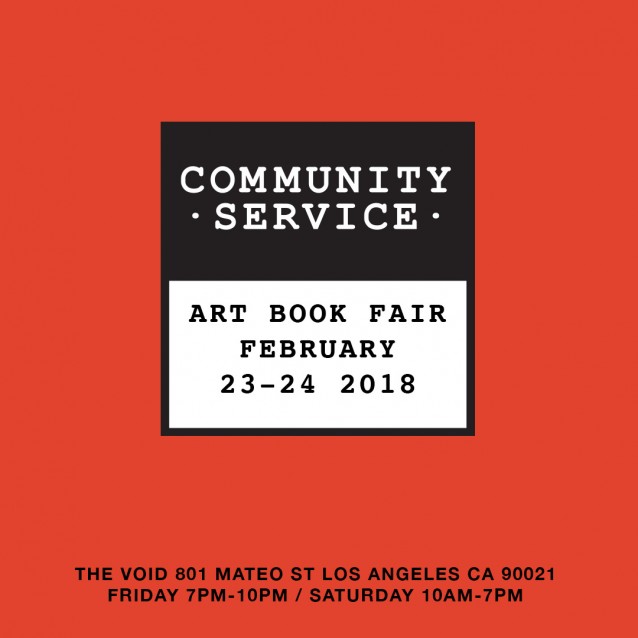
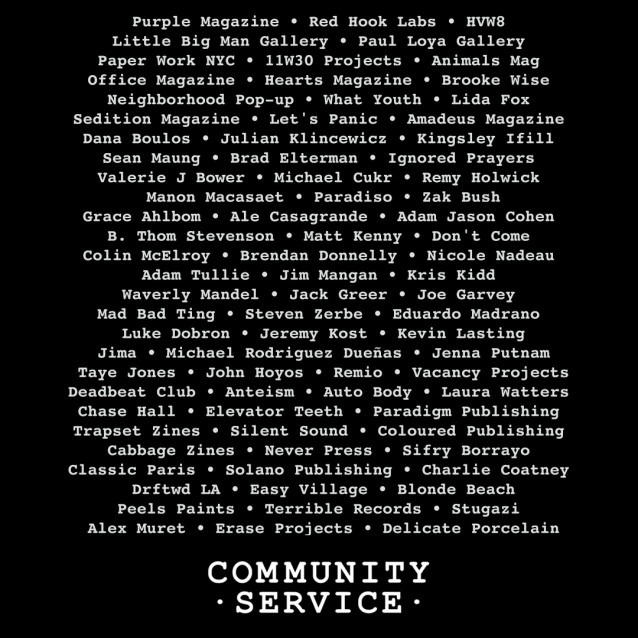
HVW8 Gallery will take part in this year’s ‘Community Service’ Art Book Fair.
February 23 – 24, 2018. 801 Mateo Street, 90021, in DTLA’s Art’s District
#communityservicelaabf
A Pop-Up Exhibition by Sarah Bahbah
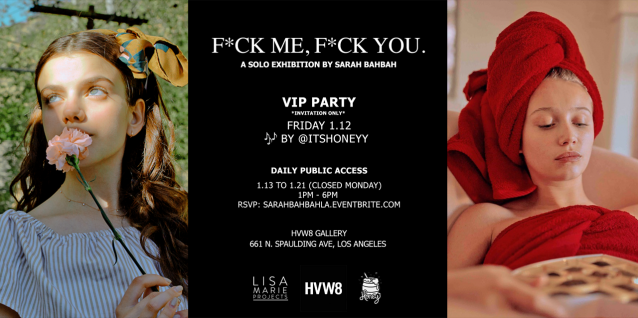
‘FUCK ME, FUCK YOU’
A Solo Exhibition by Sarah Bahbah
Opening Friday, Jan 12th, 7 – 10pm.
Please RSVP at sarahbahbahvip.splashthat.com
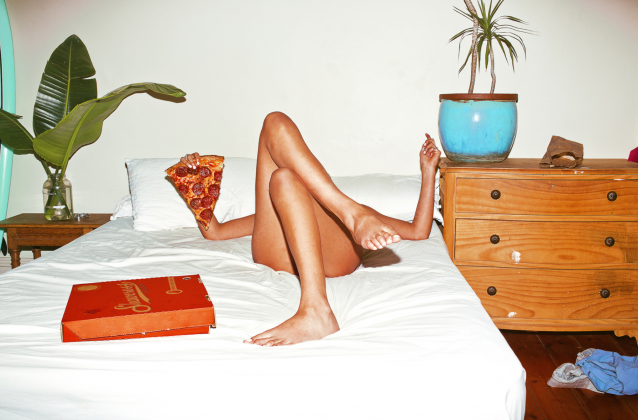
pizza
96″ x 45”
Birchwood Float
2017
Sarah Bahbah’s FIRST EVER solo exhibition in Los Angeles!
Known for her explicit transparent exploration of the internal voices of young females, Sarah Bahbah’s raw storytelling style, depicted as film stills, delve into themes of love, pain, indulgence, and coming of age with her particular brand of feminine ennui. Displayed in major art exhibitions around the world, admired by celebrities, celebrated in global publication, and with a cult-like following on Instagram, her social cause of women finding freedom in self-love is achieving worldwide reach and impact. Culminating in 2015’s, ‘Summer Without A Pool’ series through to 2017’s ‘This Is Not For You’ series, @sarahbahbah is now one of the most shared accounts on Instagram.
Works Featuring:
Daily Access: Saturday, Jan 13th – Sunday, Jan 21st (closed on Mondays)
Time: 1:00 pm – 6:00 pm daily
Location: HVW8 Gallery – 661 N Spaulding Ave, Los Angeles, CA 90036
Inès Longevial – ‘Sous Le Soleil’ at HVW8 Gallery
Opening night video of Inès Longevial exhibition ‘Sous Le Soleil’ at HVW8 Gallery.
Video by Tony Camero
Kilo Kish ‘Fullfillment’ Video – HVW8 Gallery
Article from Vogue –
Kilo Kish may be better known for wearing oversize suits than frilly dresses, but her new interactive video project for “Fulfillment,” a standout from last year’s Reflections in Real Time, proves that the rapper can pull off menswear staples and full-on gowns equally well.
Kish shared a new website designed by Empire Taste that allows the viewer to flip between four different security camera feeds of HVW8 gallery in Los Angeles. Each one depicts a different angle of Kish dancing and singing in a vintage pink gown, belted with a black ribbon that matches her long satiny gloves. HVW8 is currently housing an installation by Kish, who is also a visual artist. Of the video’s voyeuristic framing, Kish says that “watching security footage of someone alone in a big white box asks the question, ‘How do we find and define fulfillment in our digital society?’ ” So ponder the social behaviors of our current technological moment and admire Kish’s vintage pink gown by watching the clip below, or head to the website to take it in from every point of view.
Three The Hard Way – Berlin
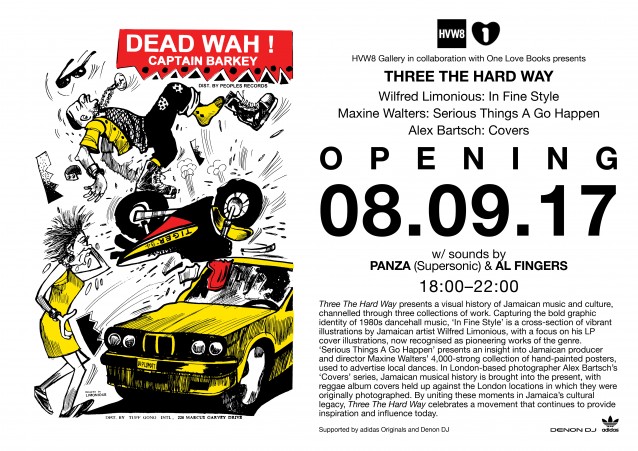
BERLIN — HVW8 Gallery Berlin in collaboration with One Love Books presents
THREE THE HARD WAY
WILFRED LIMONIOUS: IN FINE STYLE
ALEX BARTSCH: COVERS
MAXINE WALTERS: SERIOUS THINGS A GO HAPPEN
September 8th – October 14th, 2017
Opening Reception September 8th 18:00 – 22:00
In Fine Style: The Dancehall Art of Wilfred Limonious, is the first solo exhibition of work by prolific Jamaican illustrator Wilfred Limonious (1949–99) in Germany, and includes reproductions of work from the early 1970s through the mid-1990s, spanning three key phases in his career: his comic strips for the Jamaican newspapers, his illustrations for the publications of JAMAL (the Jamaican Movement for the Advancement of Literacy), and his distinctive artwork for the burgeoning dancehall scene coming out of 1980s Jamaica. The exhibition is curated by Al “Fingers” Newman and Christopher Bateman and is produced by One Love Books with the support of the Limonious Estate, to accompany their book, In Fine Style: The Dancehall Art of Wilfred Limonious, the first study into the artist’s life and work.
London-based photographer Alex Bartsch makes his debut at HVW8 Gallery Berlin with photographs from his book, Covers: Retracing Reggae Record Sleeves in London, forthcoming on One Love Books. After researching various reggae LPs and twelve-inches from his record collection, Bartsch has re-photographed fifty sleeves in their original London locations, holding them up at arm’s-length so that they blend in with their surroundings, decades later. Presented in this way, the photographs document the transition of time, with the album cover serving as a window into the past, juxtaposed against today’s backdrop. From an ethnomusicological perspective the photographs also provide a fascinating insight into the history of reggae music in London, inviting the viewer to rethink the relationship between the city and its musical heritage. The exhibition includes ten select prints from the project, featuring records by artists such as John Holt, Carroll Thompson, Peter Tosh, Moodie, Jah Woosh, Pat Kelly and Smiley Culture.
Serious Things a Go Happen features various original signs and posters from the early 1980s through today, drawn from the collection of Jamaican film and television producer and director Maxine Walters. Jamaican dancehall emerged out of reggae in the late 1970s and brought with it a new visual style characterized by bright colors and bold, hand-drawn lettering. One-of-a-kind, hand-painted posters advertising local parties and concerts have become a ubiquitous part of Jamaica’s landscape, nailed to poles and trees across the island. The exhibition in conjunction with Walters’ book Serious Things A Go Happen: Three Decades of Jamaican Dancehall Signs (Hat & Beard Press) presents an unofficial history of Jamaican dancehall music told through its graphic design.
Gallery & media contact
HVW8 Gallery Berlin , Linienstraße 161, 10115 Berlin
Jenne Grabowski
+49(0)179 – 488 1004
jenne@hvw8.com
Jenny Ames
+49(0)177 – 142 8588
jenny@hvw8.com
Supported by adidas Originals and Denon DJ
Press Release :
HVW8_PRESS_RELEASE_THREE_THE_HARD_WAY_EN
HVW8_PRESS_RELEASE_THREE_THE_HARD_WAY_DE
Select Press
Articles in the New Yorker and Vogue on Maxine Walters’ Dancehall signs. Currently on display at #HVW8Berlin
Recent Press on Alex Bartsch ‘Covers’
https://pitchfork.com/thepitch/1368-let-classic-reggae-album-covers-show-you-london-then-and-now/
https://www.creativereview.co.uk/alex-bartsch-retracing-reggae-record-sleeves-photographed-london/
https://www.theguardian.com/artanddesign/gallery/2016/nov/04/alex-bartsch-reggae-covers-photographs
https://www.redbull.com/gb-en/taking-uk-reggae-sleeves-back-home
http://www.jamaicaobserver.com/entertainment/Double-take_78821
Conversation with Kilo Kish this Saturday at 2pm
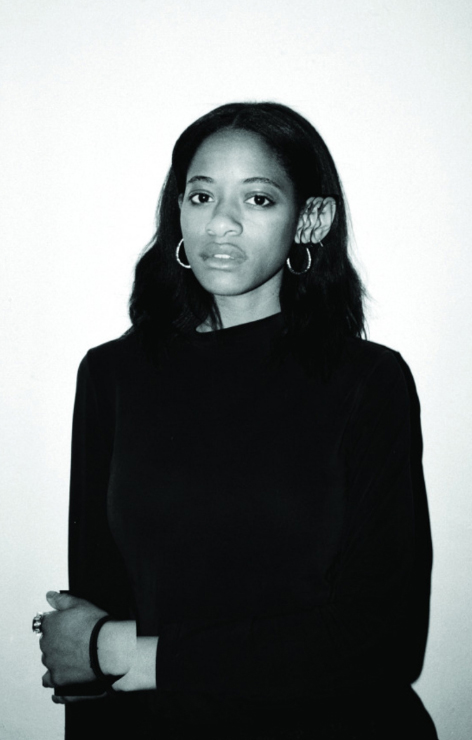
Please join us for a conversation with Kilo Kish this Saturday 8/12 at 2 pm at HVW8 Gallery LA. She will be discussing her current exhibition ‘Real Safe’ which closes Sunday 8/13.
Photos from ‘Real — Safe’
Kilo Kish Press
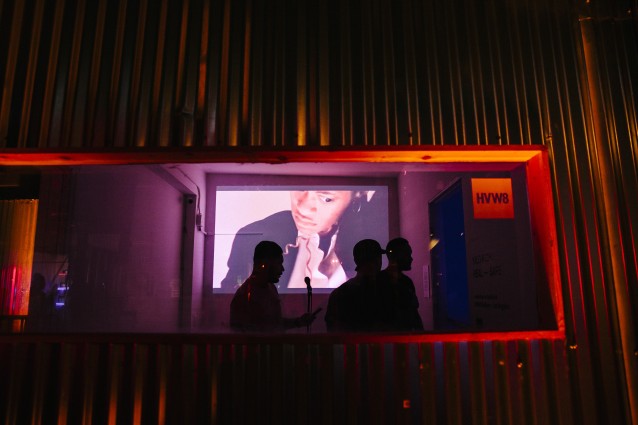
Some Recent press on Kilo Kish’s ‘Real–Safe’ exhibition.
Photo’s from Budland installation courtesy BFA.
Flaunt Magazine
http://www.flaunt.com/content/art/welcome-to-the-real-safe-zone
Nylon Magazine
The Kilo Kish Playbook To Living Your Most Authentic (And Artistic) Life
Video from Mark Gonzales ‘Fower Plower’ Opening Night
Mark Gonzalez ‘Fower Plower’ opening night at HVW8 Gallery, Los Angeles.
Shot and edited by Joe Miller.
Music “Mondo and His Makeup”
Performed by Hanni El Khatib
Courtesy of Innovative Leisure
New Gallery / Artist Product
New Work on Display
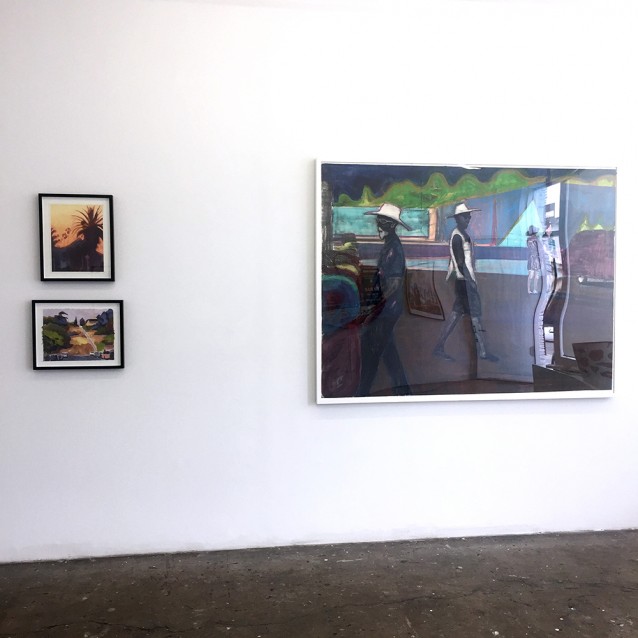
New Work on Display at HVW8 Los Angeles. Email info@hvw8.com for inquiries and appointments.
HVW8 Gallery Instagram
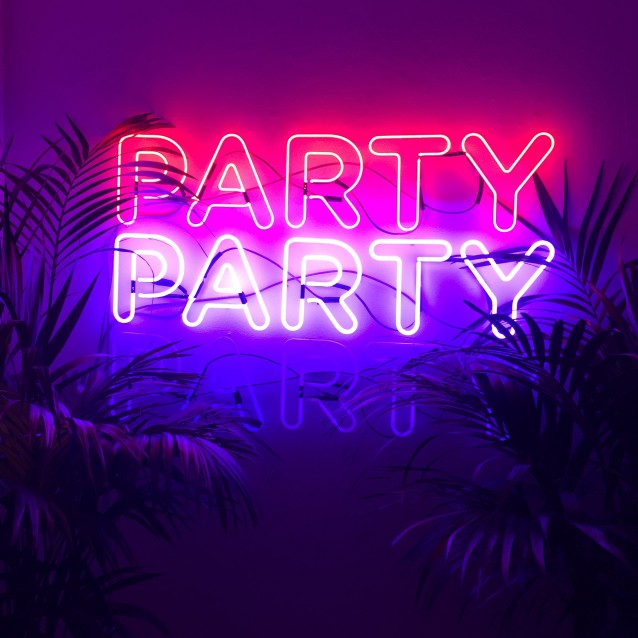
From last weekend’s installation with PartyNextDoor.
Please follow @HVW8gallery
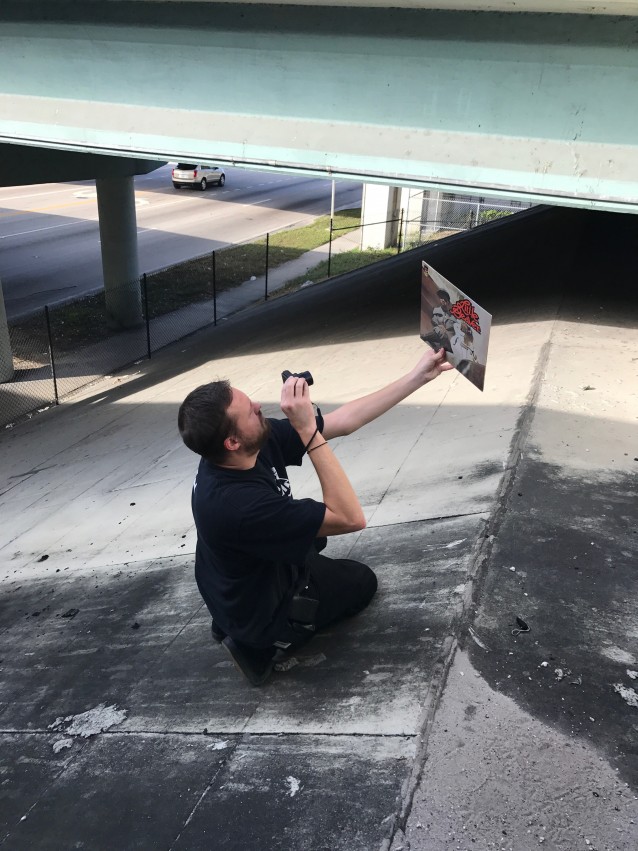
Alex Bartsch in documenting album covers in Miami.
More on @HVW8gallery
Perspective Tyler Gibney of HVW8 Gallery
Artist and gallerist Tyler Gibney spoke to VSCO at his Los Angeles gallery HVW8 about the exhibition “Anxiety” (Nov 4 – Dec 16), a group show he curated with Laura Watters that sought to address “the unnerving tension of the strange climate of present day.” The theme of the show would prove to be even more relevant as the US and the world reacted to the new era that was ushered in on November 8th. Following the election, works in the show resonated with further levels of meaning — Cali Thornhill DeWitt’s opioids and Earths installation, Brendan Lynch’s tribute tee to Eric Garner (which the artist had worn across a two-year span), and Gibney’s own “Gun America” mural painted large on the side of the building. Gibney has a history of organizing work that intersects with politics and social issues, most notably, “The Art of a Political Revolution — Artists for Bernie Sanders” earlier in 2016. And in this vignette, Gibney offers his views on the gallery’s role, and responsibility, in providing the needed context for the crucial position that artists play in offering perspectives on the pressing issues of our times.
Video by Wilson Cameron
Link to VSCO site HERE
In Fine Style Miami Party
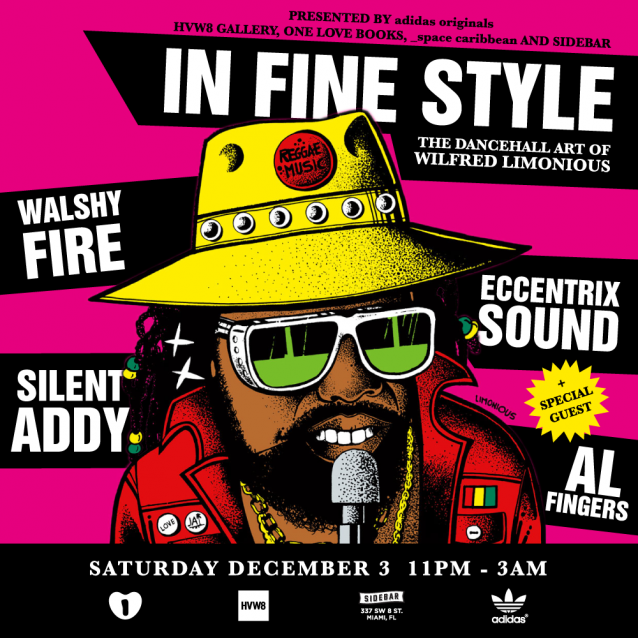
Anxiety Opens Nov. 4th
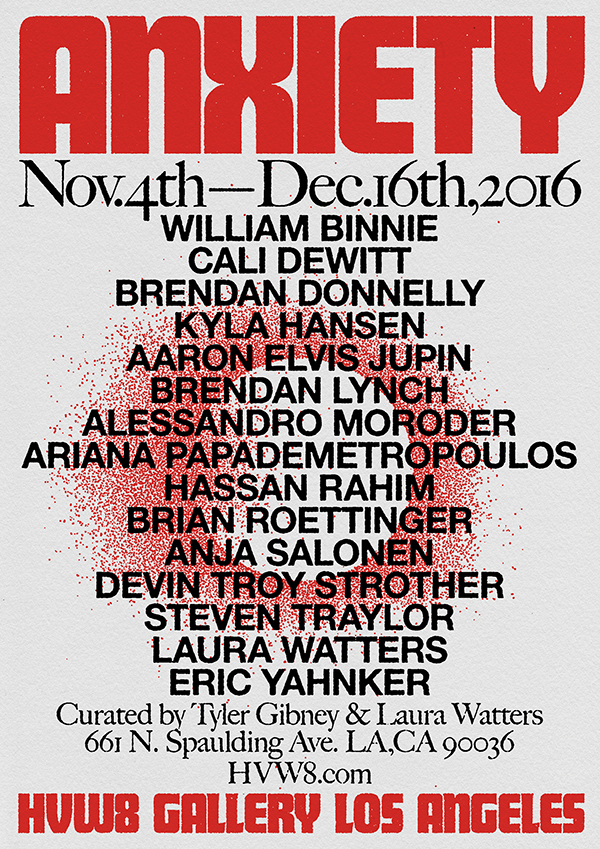
East Side Story opening night photos
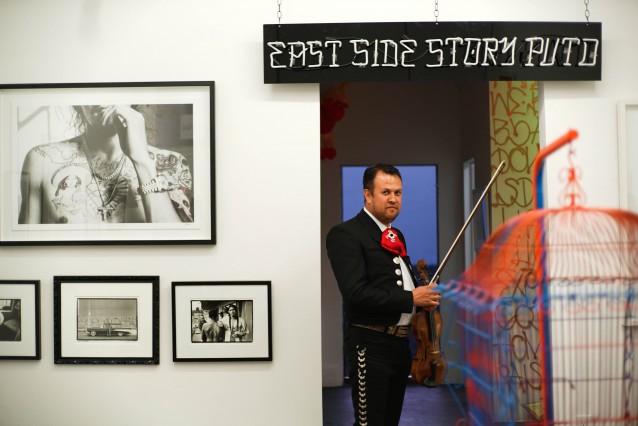
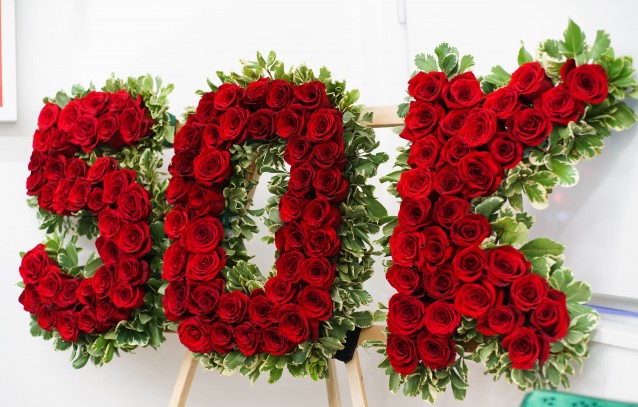
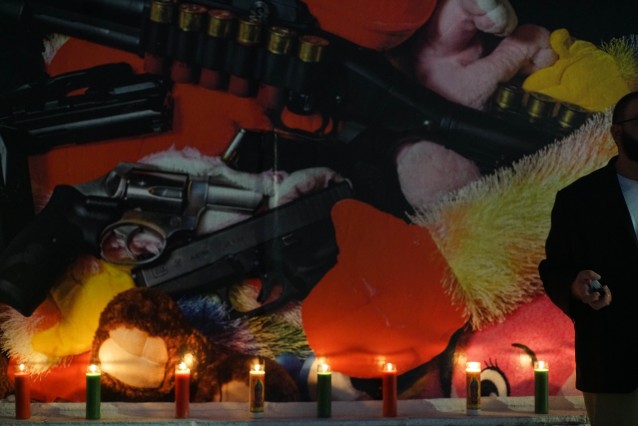
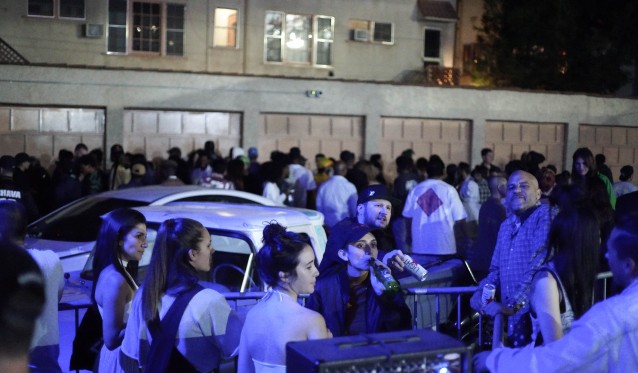
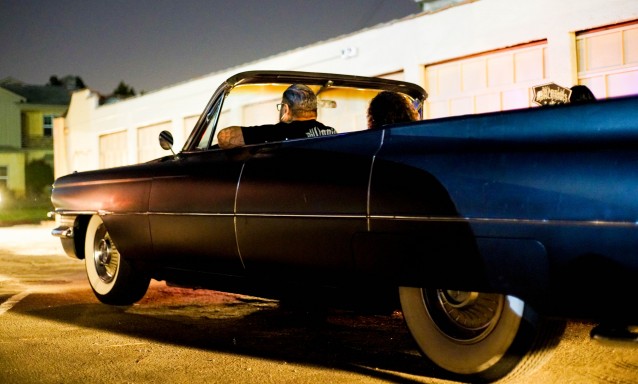
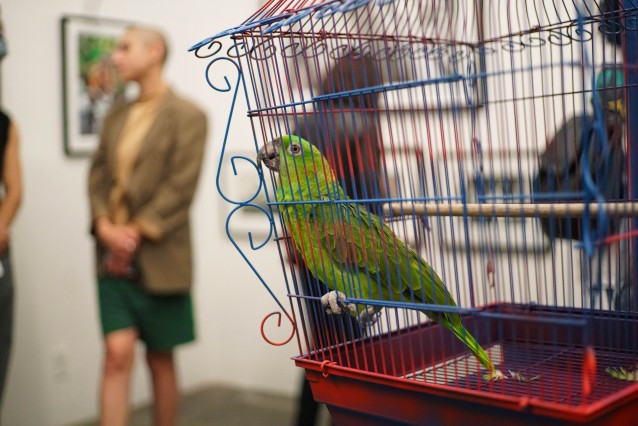
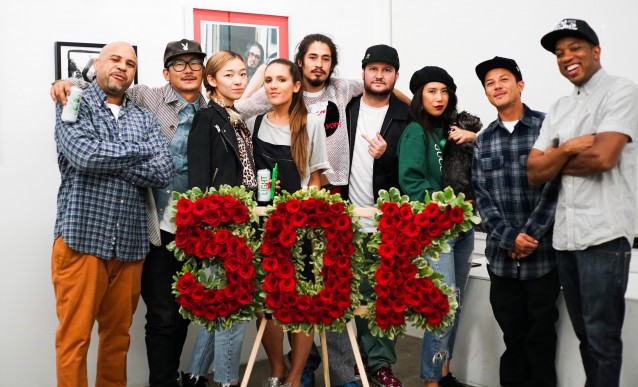
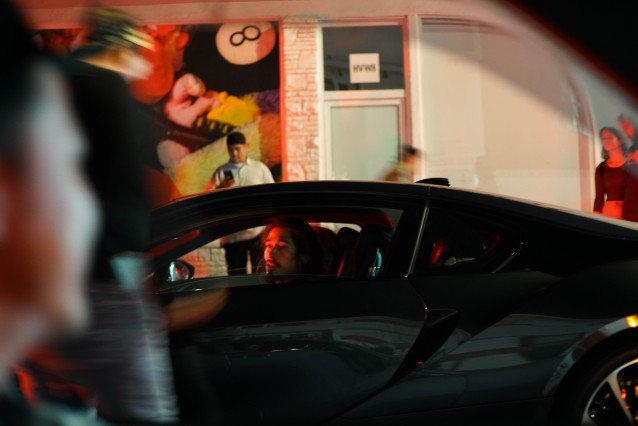
Upcoming Limonious Exhibition on Vogue
Upcoming Wilfred Limonious Exhibition featured on Vogue.
Cosmic Perspective Opening Night Photos
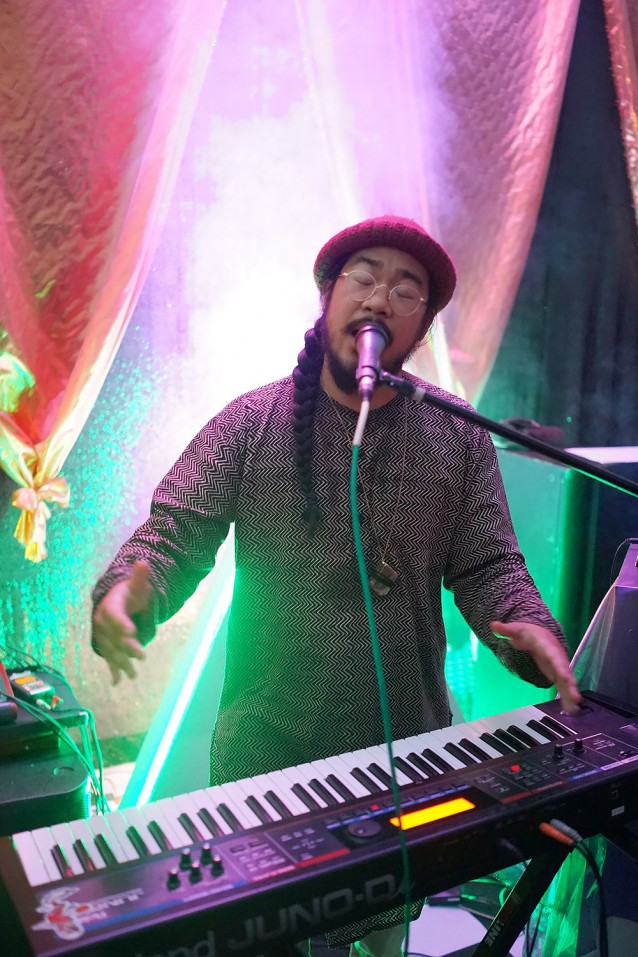
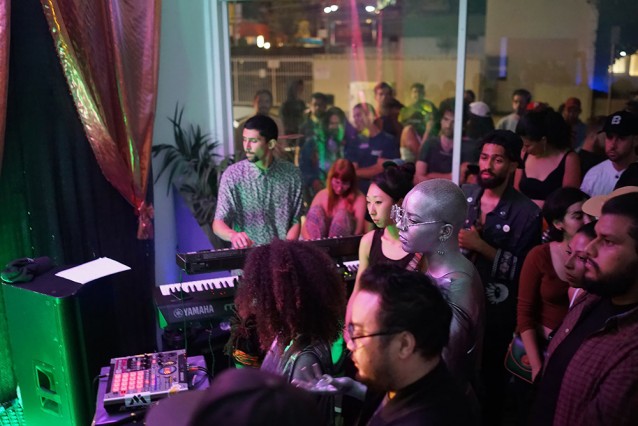
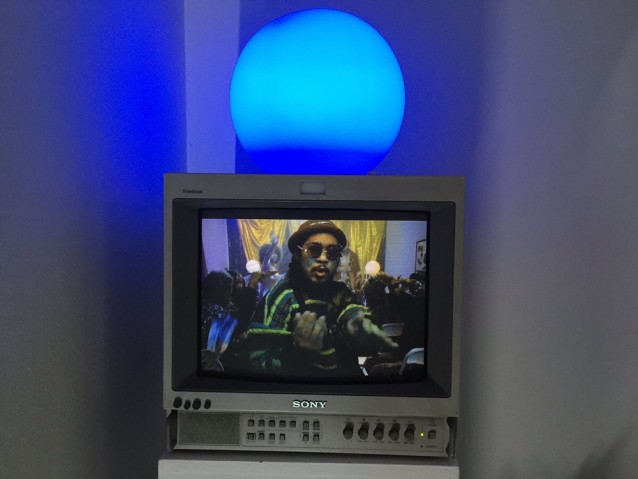
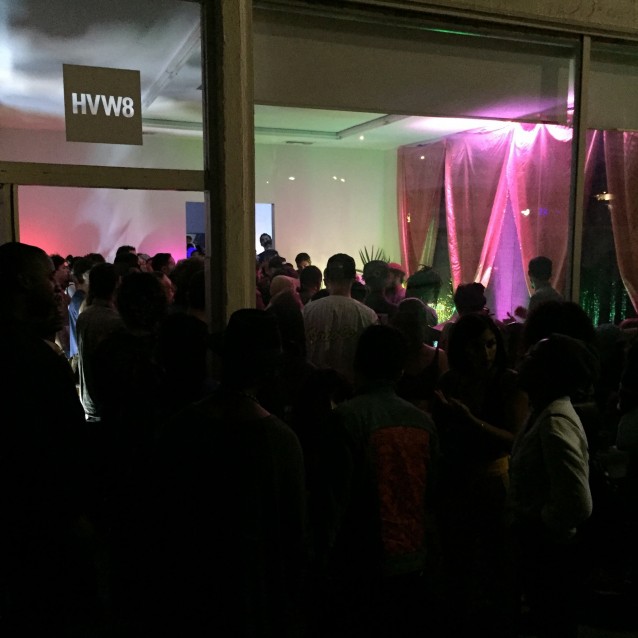
Thank you for those that came out for the Cosmic Perspective Installation and Performance featuring MNDSGN. We have a few shirts from the event now available online. More photos from opening night on our HVW8 Facebook page courtesy Chris Hund @Paxicorecords.
MNDSGN COSMIC PERSPECTIVE
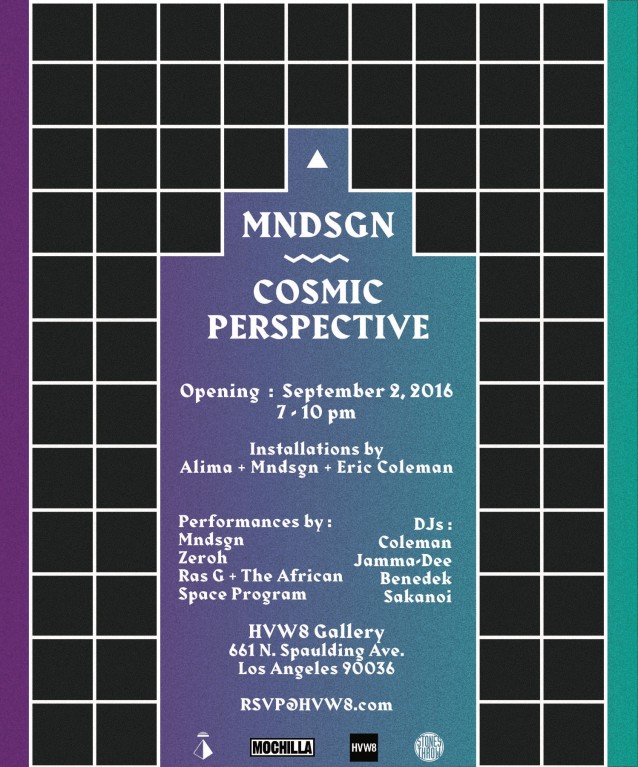
Join us Friday September 2nd, 7 – 10pm for an installation and performance of Cosmic Perspective by MNDSGN.
Please RSVP at rsvp@hvw8.com
Installations By:
Alima
Mndsgn
Eric Coleman
Performances By:
Mndsgn
Zeroh
Ras G + The African Space Program
Coleman (DJ)
Jamma-Dee (DJ)
Benedek (DJ)
Sakanoi (DJ)
Los Angeles and Berlin Current Exhibitions
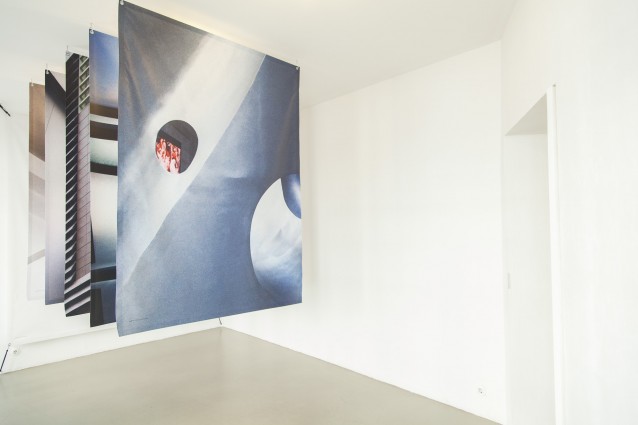
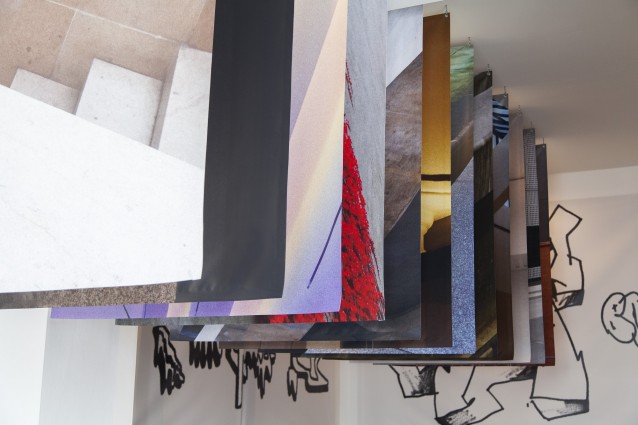
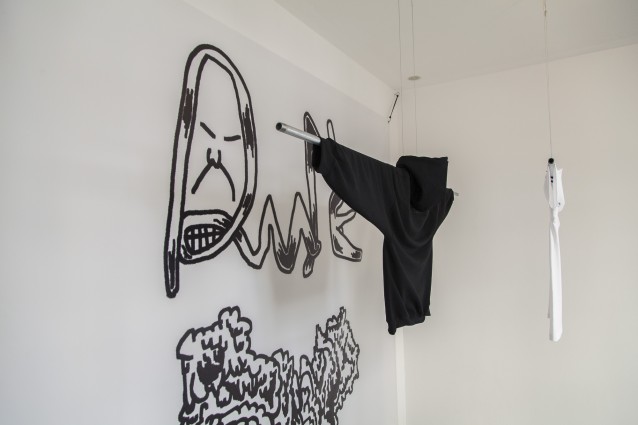
Haw-lin Services ‘Shows You’ currently on display at HVW8 Berlin
More photos here.
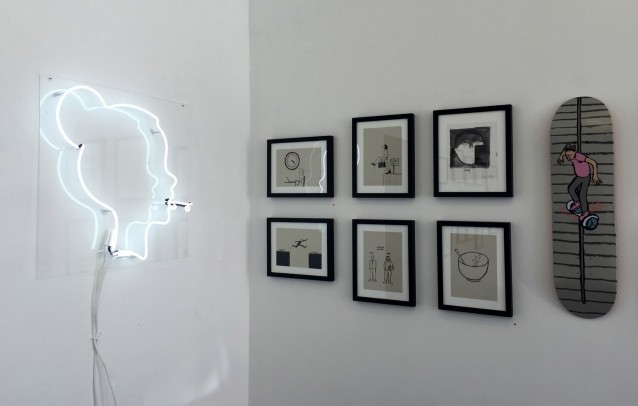
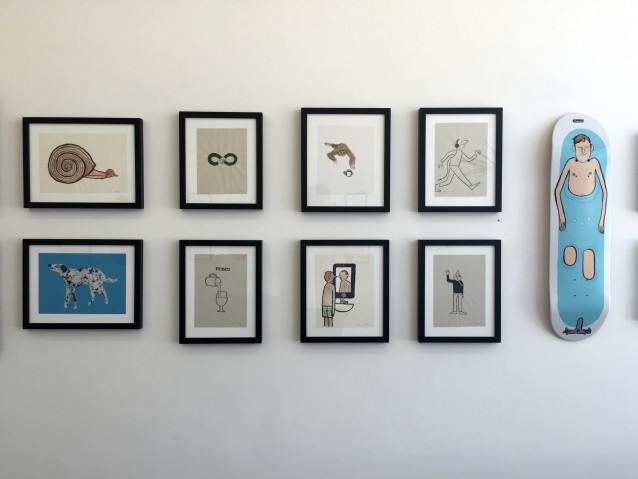
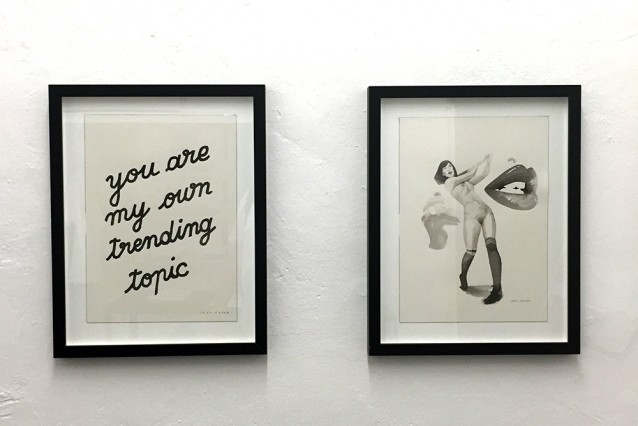
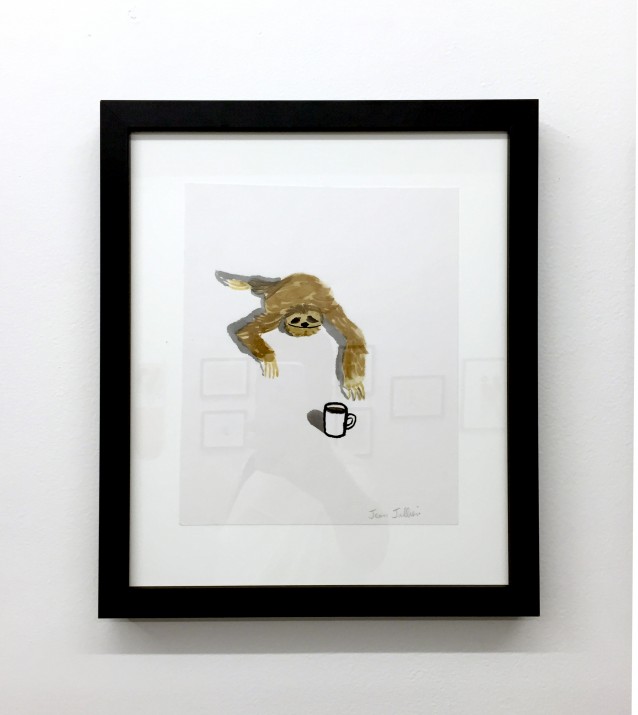
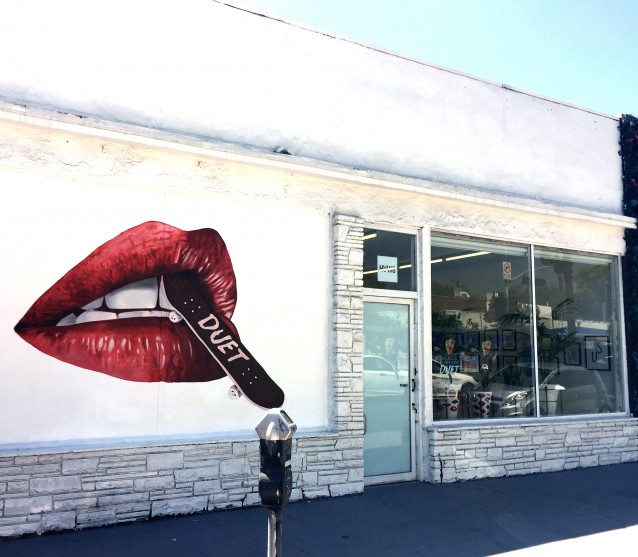
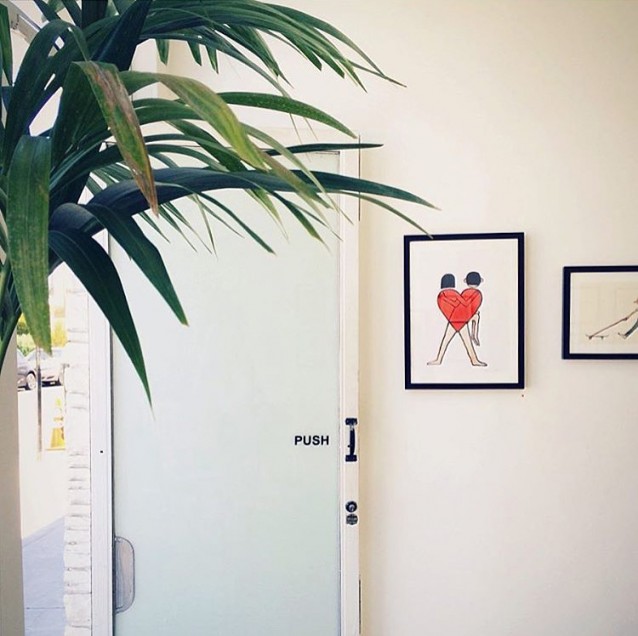
Jean Jullien and Jean André now on display at HVW8 Los Angeles
Bernie Sanders NYC Exhibition
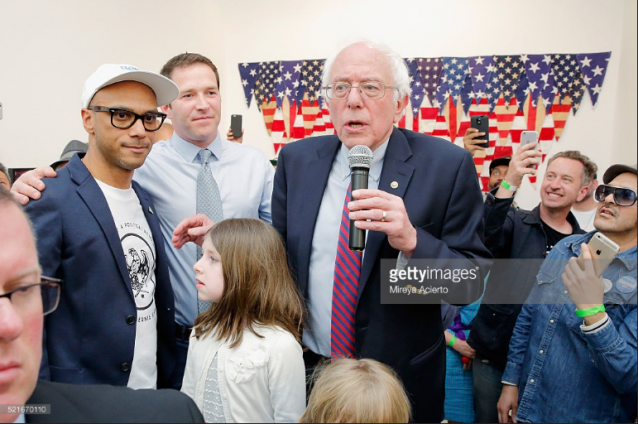
Bernie Sanders at the opening night.
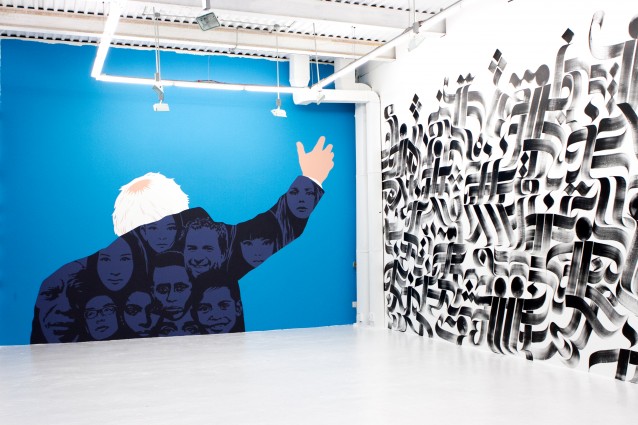
Artwork by Dan Buller and RoStarr
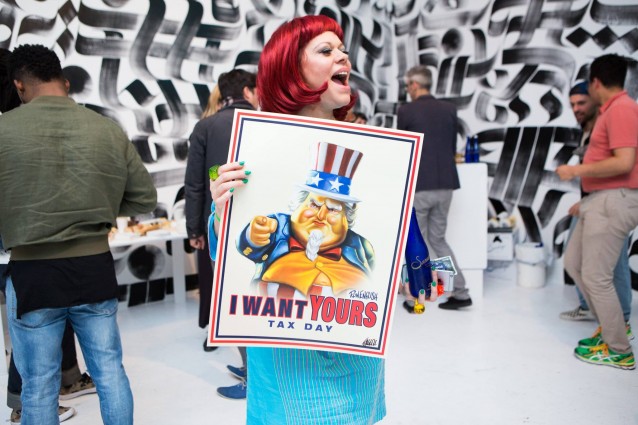
Deee Lite’s Lady Miss Kier
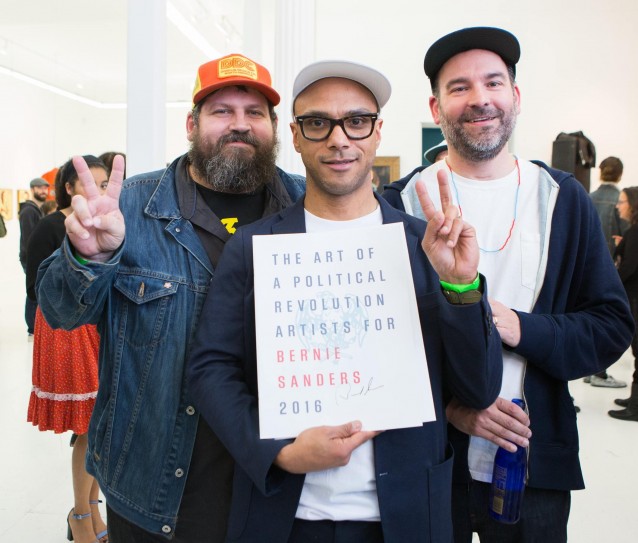
Aaron Draplin, Luis Calderin, Cody Hudson
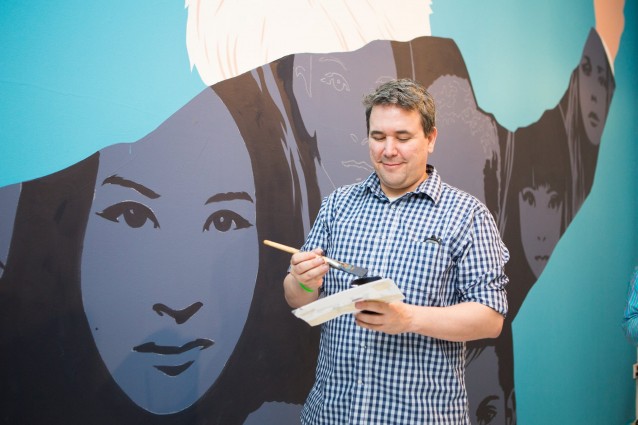
Dan Buller
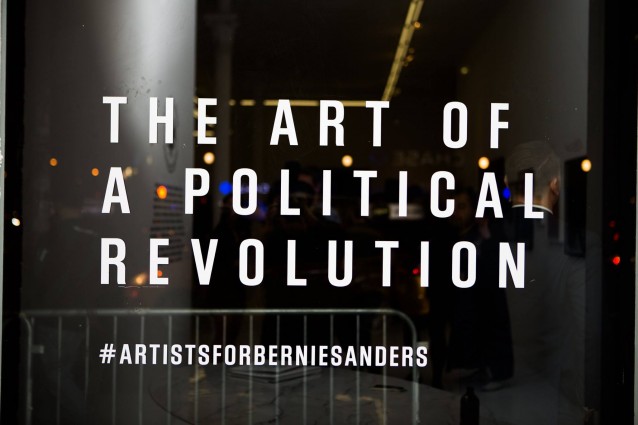
The Hole NYC
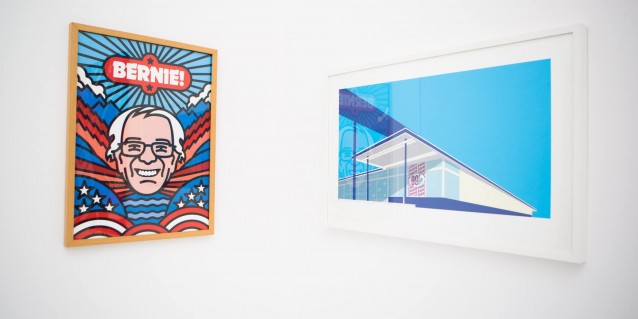
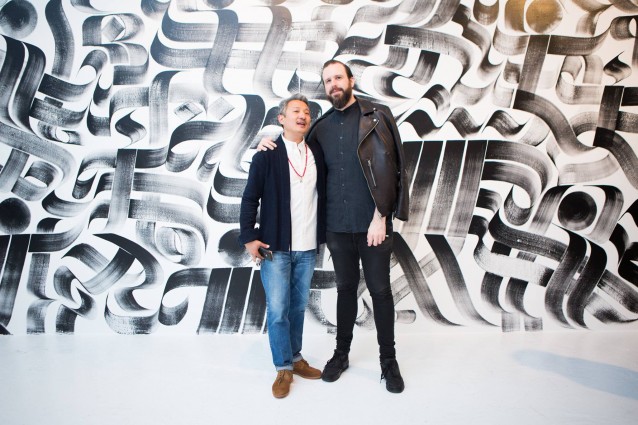
Romon Yang ‘RoStarr’, Prince Language
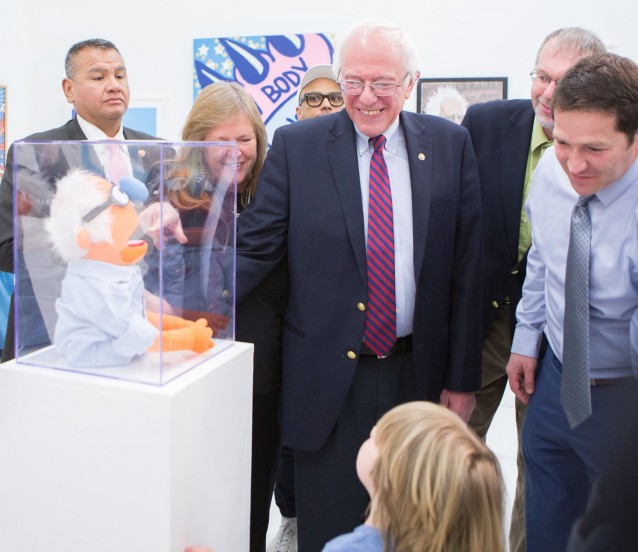
Bernie Muppet, Bernie and Jane Sanders, Dave Driscoll.
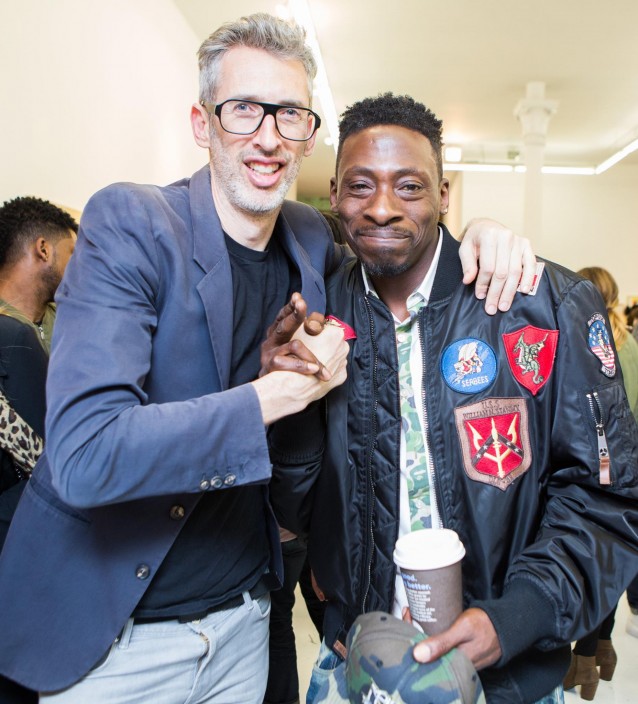
Stretch Armstrong, Pete Rock
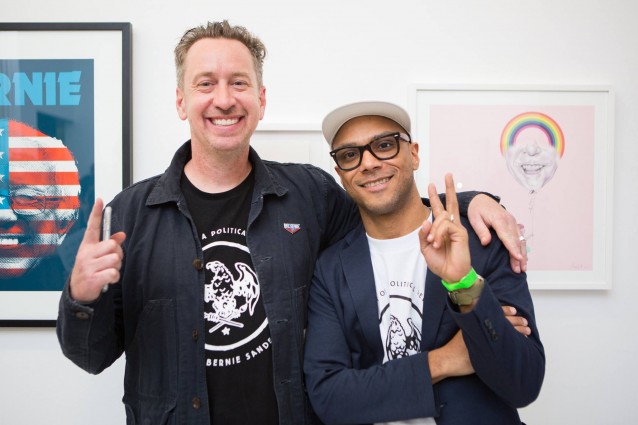
Tyler Gibney, Luis Calderin
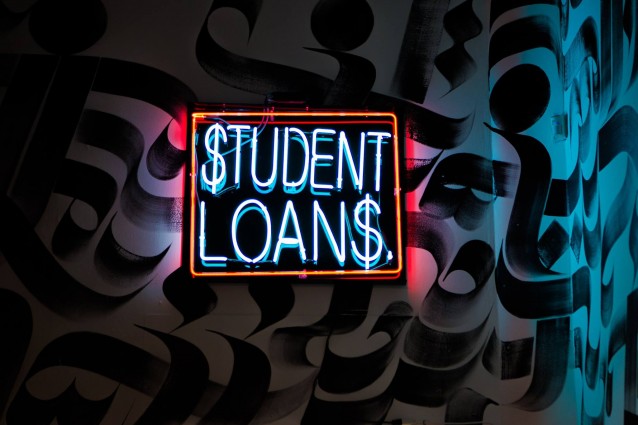
Patrick Martinez
Photos from the Art Of A Political Revolution NYC now online.
The Art of a Political Revolution – Austin Feb. 12th, 2016
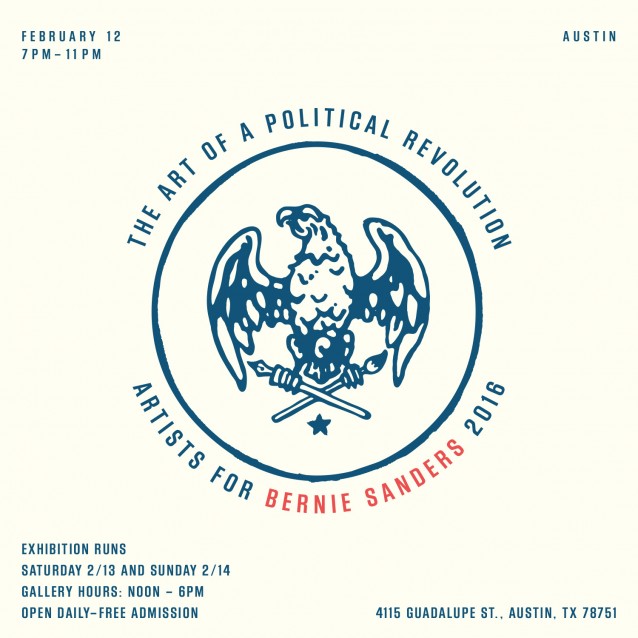
Bernie Sanders 2016
Presents
“The Art of a Political Revolution”
featuring both artists and musicians
to inspire change throughout the nation.
Featuring a Compilation of Acclaimed Artistic Works
Inspired by the Political Landscape
Opening Reception in Austin, TX
Friday, February 12th from 7:00pm – 11:00pm
RSVP Here
Group Show Runs from
Saturday, February 13 – Sunday, February 14
Daily from 12:00pm – 6:00pm
Future exhibitions and locations include:
Boston, MA and New York, NY
#ArtistsForBernieSanders
Bernie Sanders 2016 with HVW8 Art + Design Gallery and Creative Cabal have united to launch a national group art exhibition which will open and kick off in Hyde Park focused around critical issues affecting our country. An opening reception at 4115 Guadalupe St., Austin, TX 78751 will launch “The Art of a Political Revolution” in conjunction with the official Bernie Sanders 2016 campaign on Friday, February 12 with an opening reception from 7:00pm – 11:00pm.
Participating artists include: Aaron Draplin, Amanda Marsalis, Atiba Jefferson, Brian Lotti, Bryan Blue, Byron O’Neill, Charlie Becker, CLAW MONEY, Cody Hudson, Dan Buller, Dave Kloc, Donny Miller, Dug Nap, Dylan Fant, Ellen Voorheis, Erin Garcia, Greg Auerbach, Hayley Starr, Heidi Hartwig, Jackson Tupper, Jamal Gunn Becker, Jeremyville, Jermaine Rogers, Josh Maupin, Kozyndan, Michael Vincent Laviolette, Mtendere Mandowa ‘Teebs’, Nathan Bell, Patrick Martinez, Richard J. Oliver, Ron English, Saelee Oh, Obey Giant, Steven Arroyo, Sven Barth, Tyler Benjamin Gibney, Zoetica Ebb.
Music by following artists: Ernest Gonzales, DJ Dangit, Black Spade, DJ Jester the Filipino Fist, DJ Manny, soundfounder, DJ No Kid$, DJ Chicken George, Matt Sonzala.
Kicking off in Los Angeles earlier this year, “The Art of a Political Revolution” is a touring exhibition featuring both artists and musicians seeking to inspire change throughout the nation. Future exhibitions and locations include: Boston on February 19 – 21 and New York City, NY, February 24 – 28 2016.
Senator Sanders has started what he calls a “political revolution,” driving one of the most successful grassroots political campaigns of our time. As Sanders continues to force the debate on critical issues affecting all Americans, artists are sure to play a crucial role in getting people to engage, learn and become inspired. Income inequality, climate change, racial justice, immigration, and affordable education, are just some of the hot button issues that serve as the inspiration for these works from both international and locally acclaimed artists included in the show. Limited prints of artwork will be sold at the exhibition, the proceeds of which will be donated to Bernie Sanders 2016. Artist Jermaine Rogers will be present to sign limited edition prints from 8-9 pm.
The Art of a Political Revolution – Artists for Bernie Sanders
Friday, February 12 from 7:00pm – 11:00pm
#ArtistsForBernieSanders
Open Daily – Free Admission
Saturday, February 13th – Sunday, February 14 2016
12:00pm – 6:00pm
4115 Guadalupe St.
Austin, TX 78751
For Media Inquiries Contact:
Jennifer Gross / Julia Axelrod
Evolutionary Media Group
323.658.8700 (o) / 323.646.8412 (c)
Jennifer@emgpr.com / Julia@emgpr.com
Photos from the Art of a Political Revolution opening Los Angeles
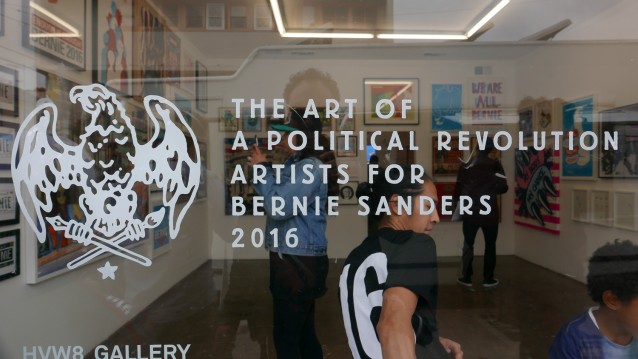
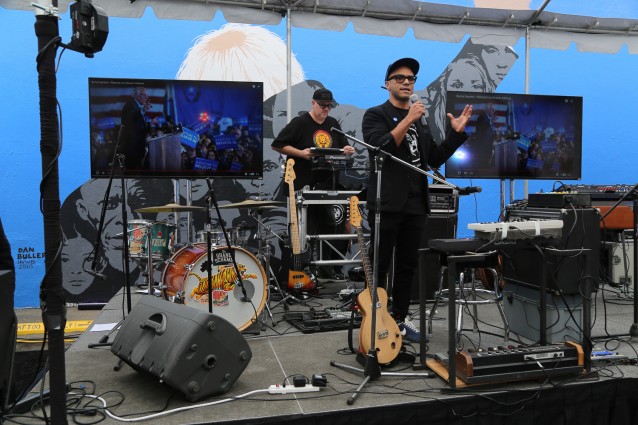
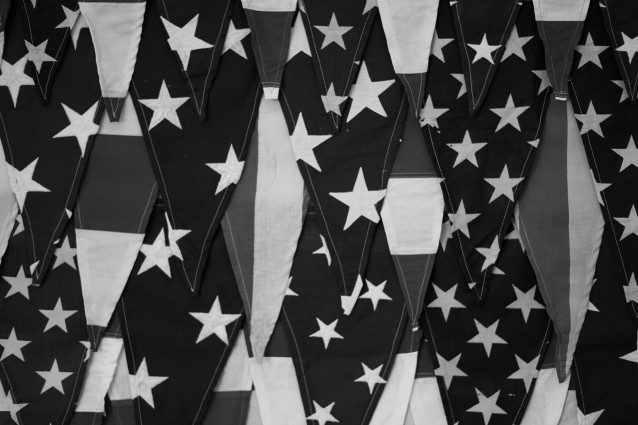
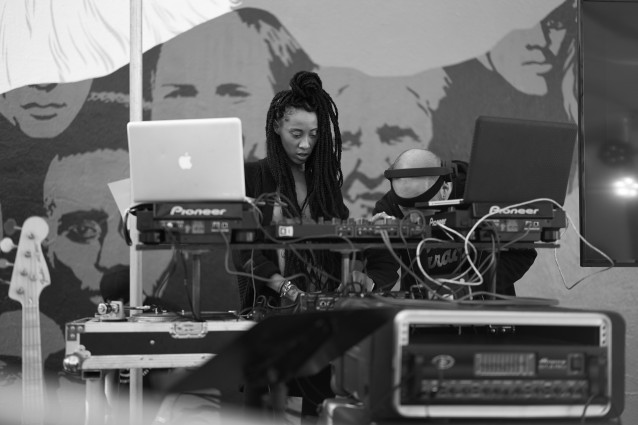
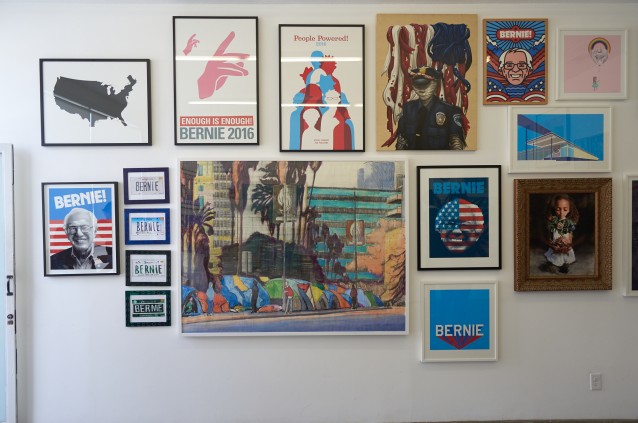
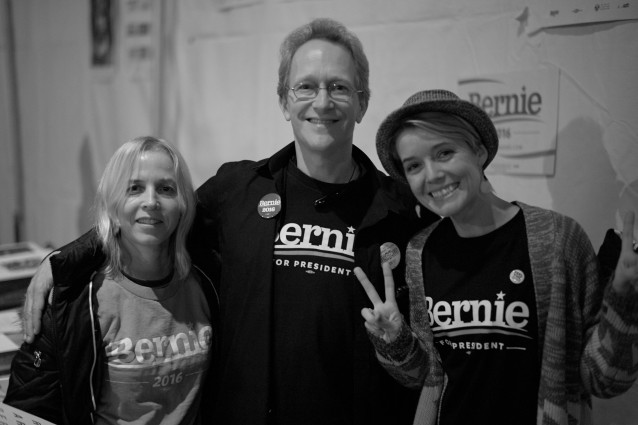
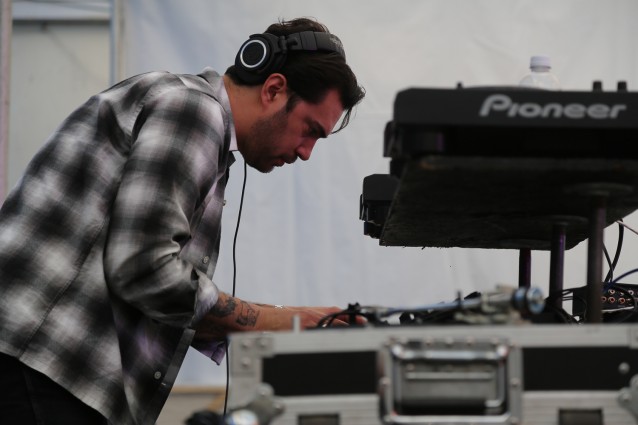
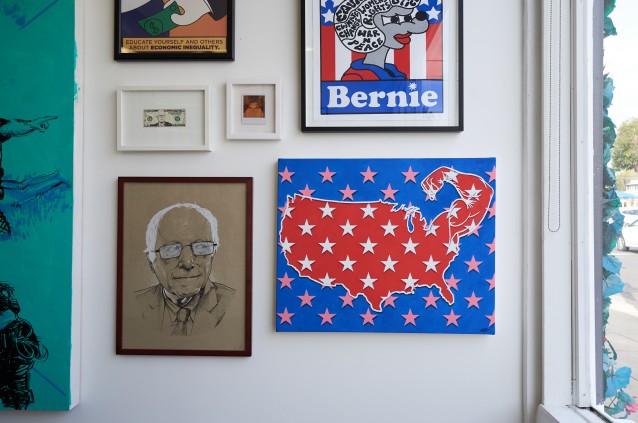
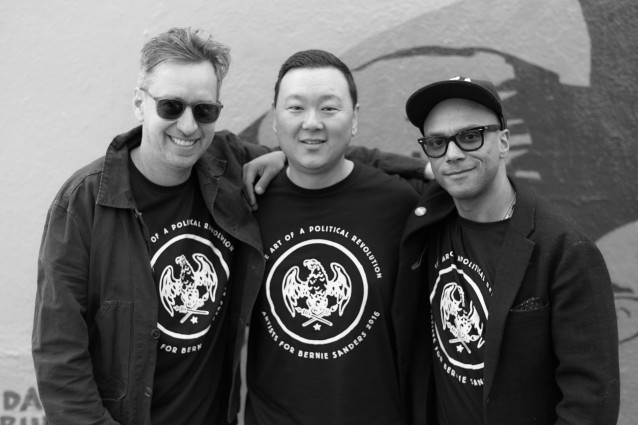
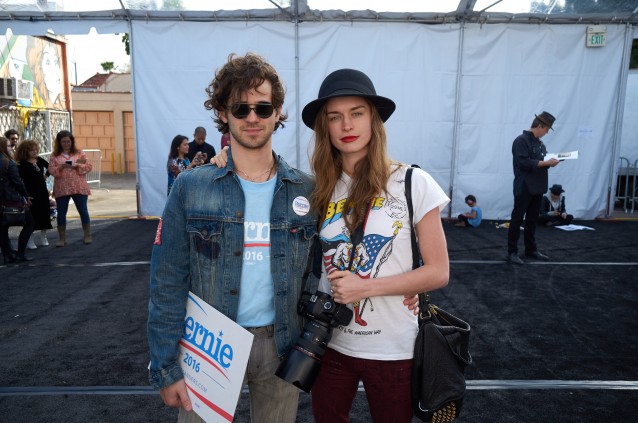
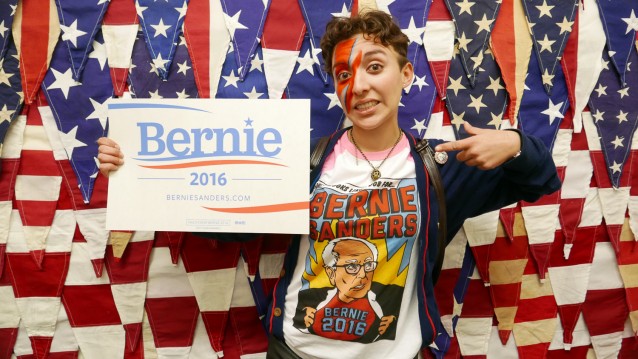
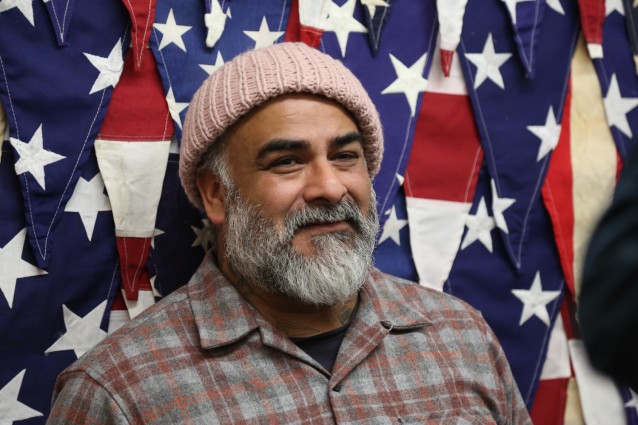
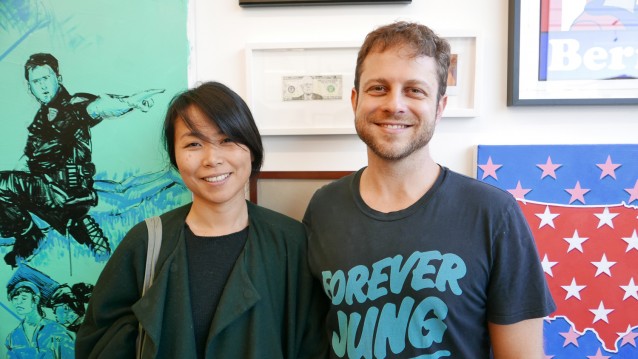
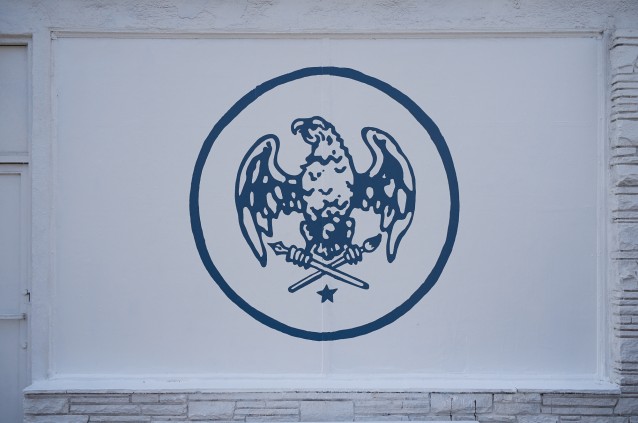
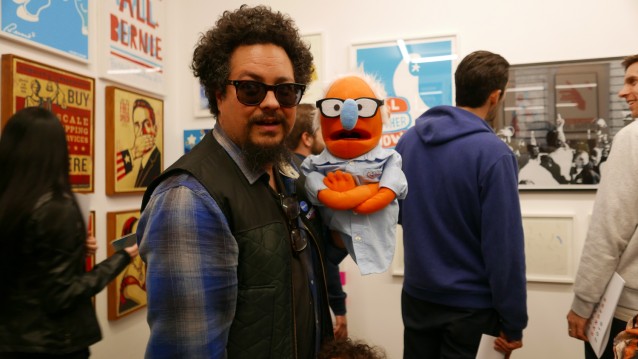
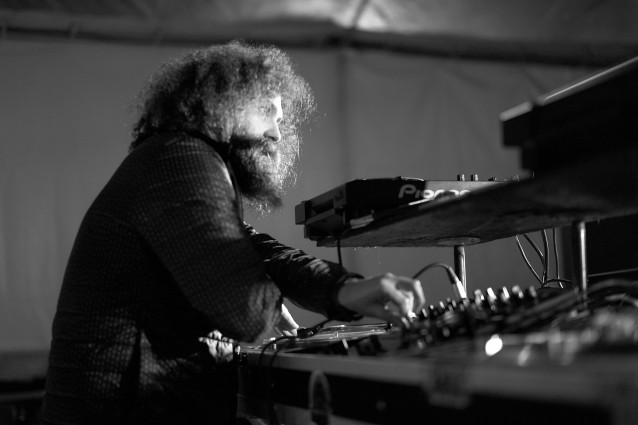
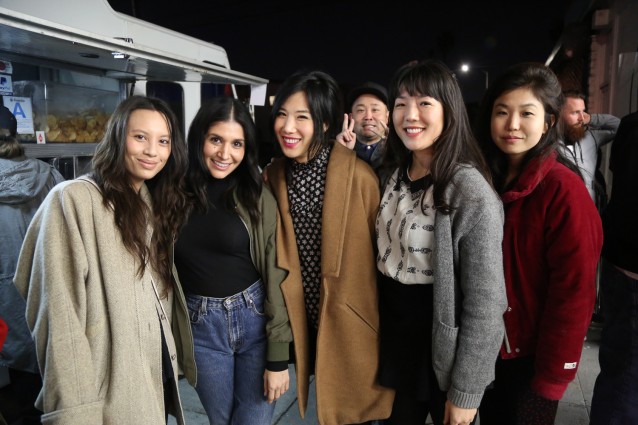
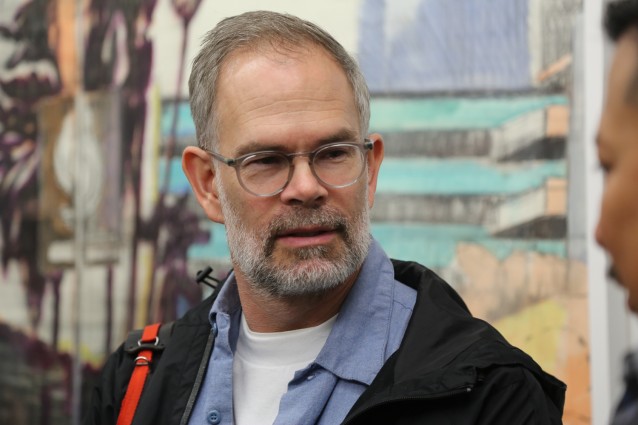
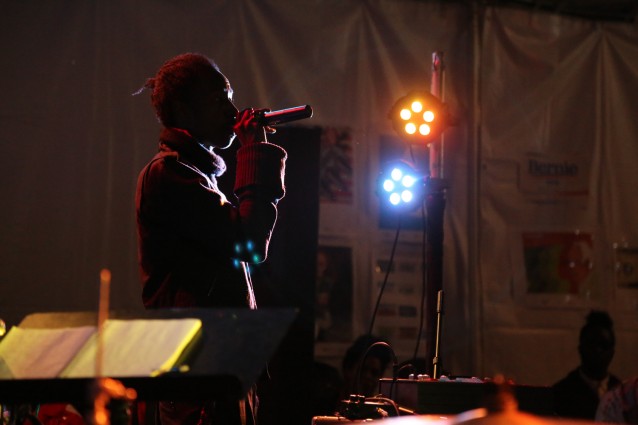
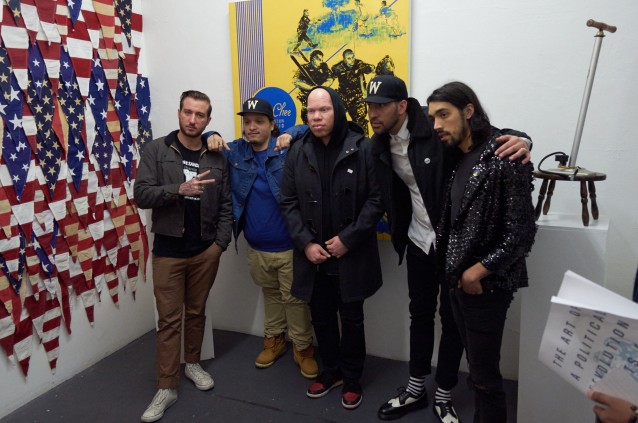
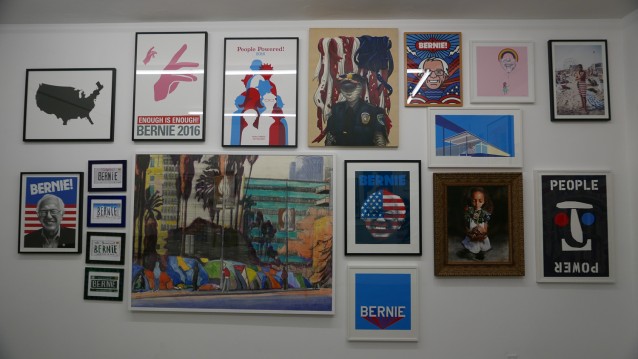
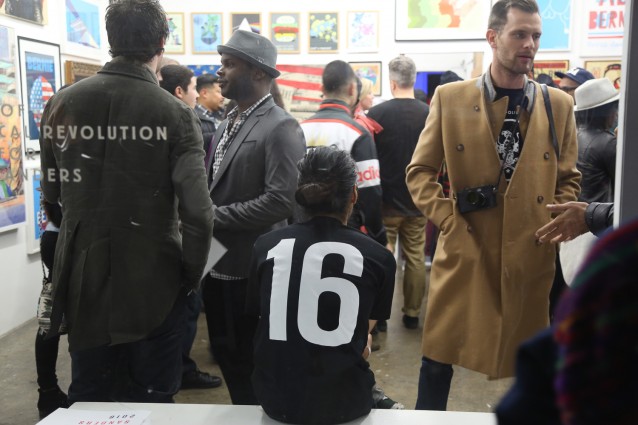
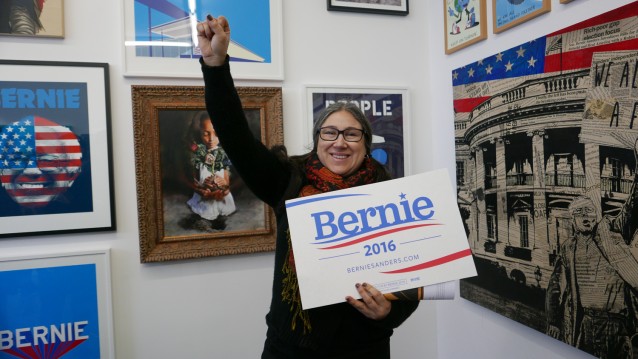
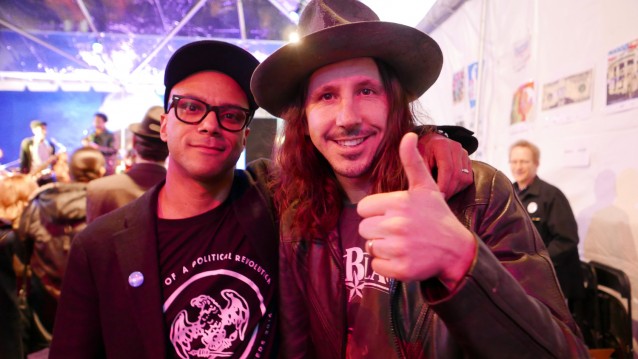
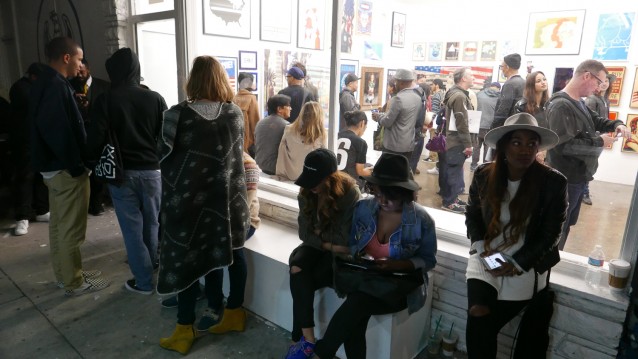
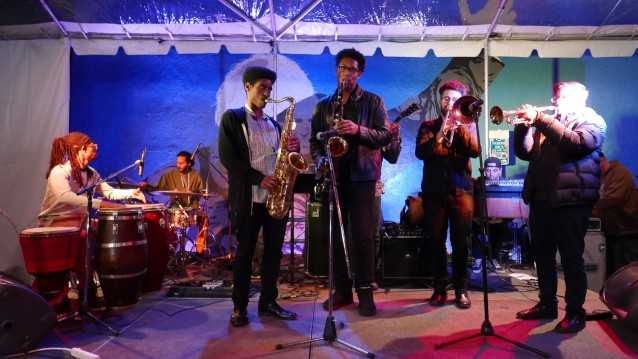
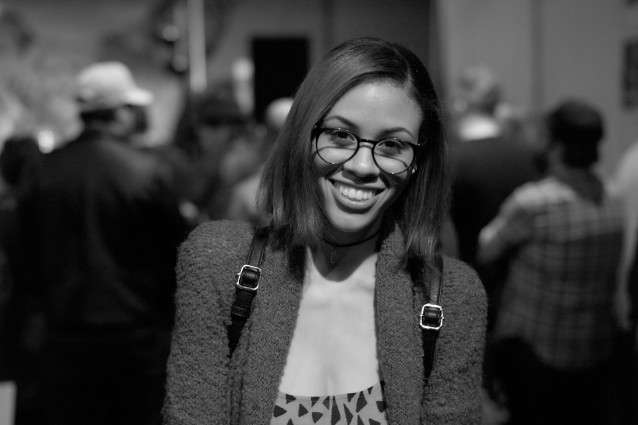
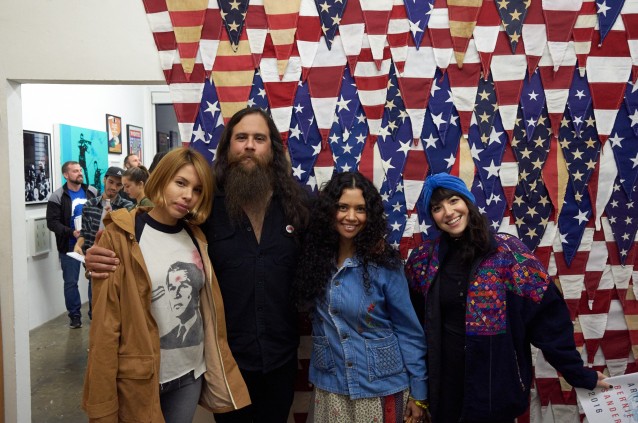
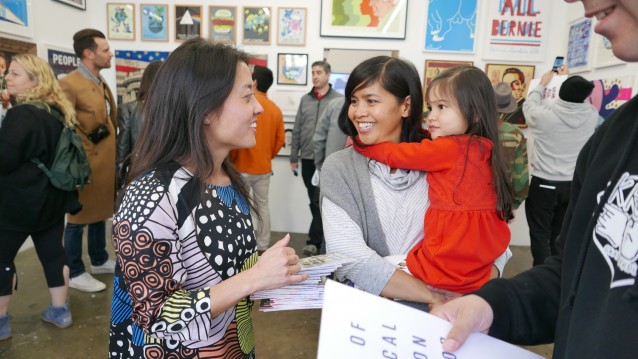
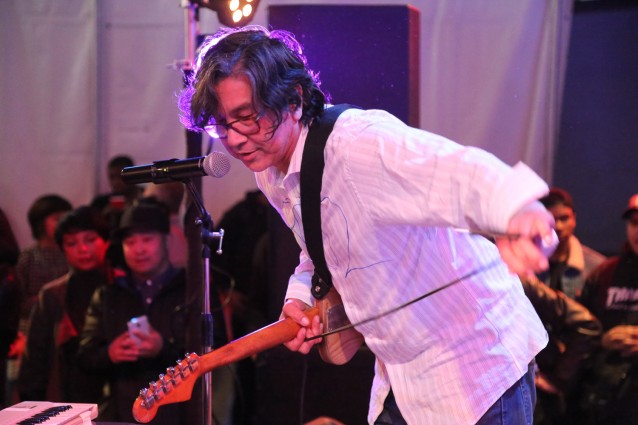
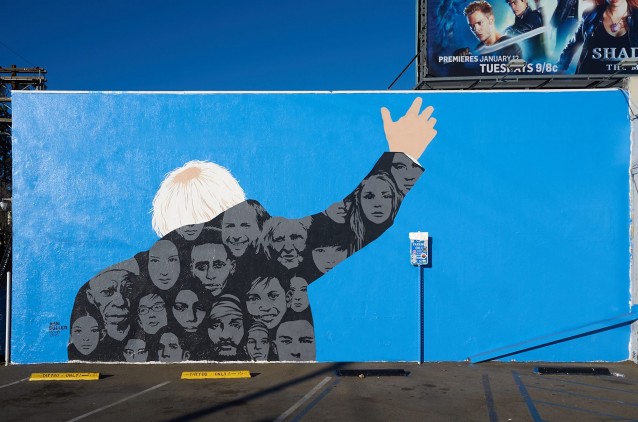
Thank you to everyone that came out to ‘the Art of a Political Revolution’ opening this past Saturday. People were treated to a great day of Art and Music as well as a live broadcast of Bernie Sanders.
#artistsforBernieSanders
More photos HERE
Los Angeles Gallery Appointments
The HVW8 Los Angeles Gallery is open by appointment only until December 2nd, then will resume regular hours.
If you would like to view and / or purchase artwork from previous exhibitions please email info@hvw8.com and arrange an appointment.
Thank-you

